Singapore Airlines has some of the best business-class seats and service in the world. While I’d consider a single flight in one of the airline’s lie-flat pods to be a treat, I actually got the chance to test two different versions of its business-class seats on back-to-back flights during my recent trip to Australia.
My flight from San Francisco (SFO) to Singapore (SIN) was aboard one of the airline’s Airbus A350-900s and my continuing leg from Singapore to Sydney (SYD) was on an A380 with Singapore’s latest business-class products aboard.
In many ways, the A350 and A380 seats are very similar, but there are some significant differences that might prompt you to select one over the other in case you’re ever on a route where there’s a choice between the two.
In order to keep my comparison of the two as apples-to-apples as possible, I won’t be commenting on the so-called “soft products,” such as meal service and amenity kits, since those are standardized across the airline’s long-haul routes. Instead, I’ll focus on the cabins and the seats themselves, including their configuration, technology and personal stowage. Here’s how Singapore Airlines’ business-class seats aboard the A350 compare to the A380.
Want more TPG news dropped in your inbox each morning? Sign up for our daily newsletter.
In This Post
Cabin configuration
The A380 is much larger than the A350, so the cabin configurations are quite different, but also vary from the A350-900 to the A350-900ULR, so it’s worth paying attention to which jet you’ll be on.
A350
Singapore Airlines flies three different versions of the Airbus A350-900.
The type it uses for long-haul routes has three classes – economy, premium economy and business class. An A350-900ULR, or “ultra-long-range” variant that the airline deploys on its very longest services, including Singapore to New York-JFK and Newark (EWR) has just business class and premium economy cabins. The third and final version of its A350-900s has entirely different seat products on board and is only used on medium-haul routes. We’re just talking about the seats on its long-haul A350-900s and ULRs, though.
Aboard the A350-900ULR, there are 67 business-class seats laid out in a 1–2–1 pattern across two different cabins.
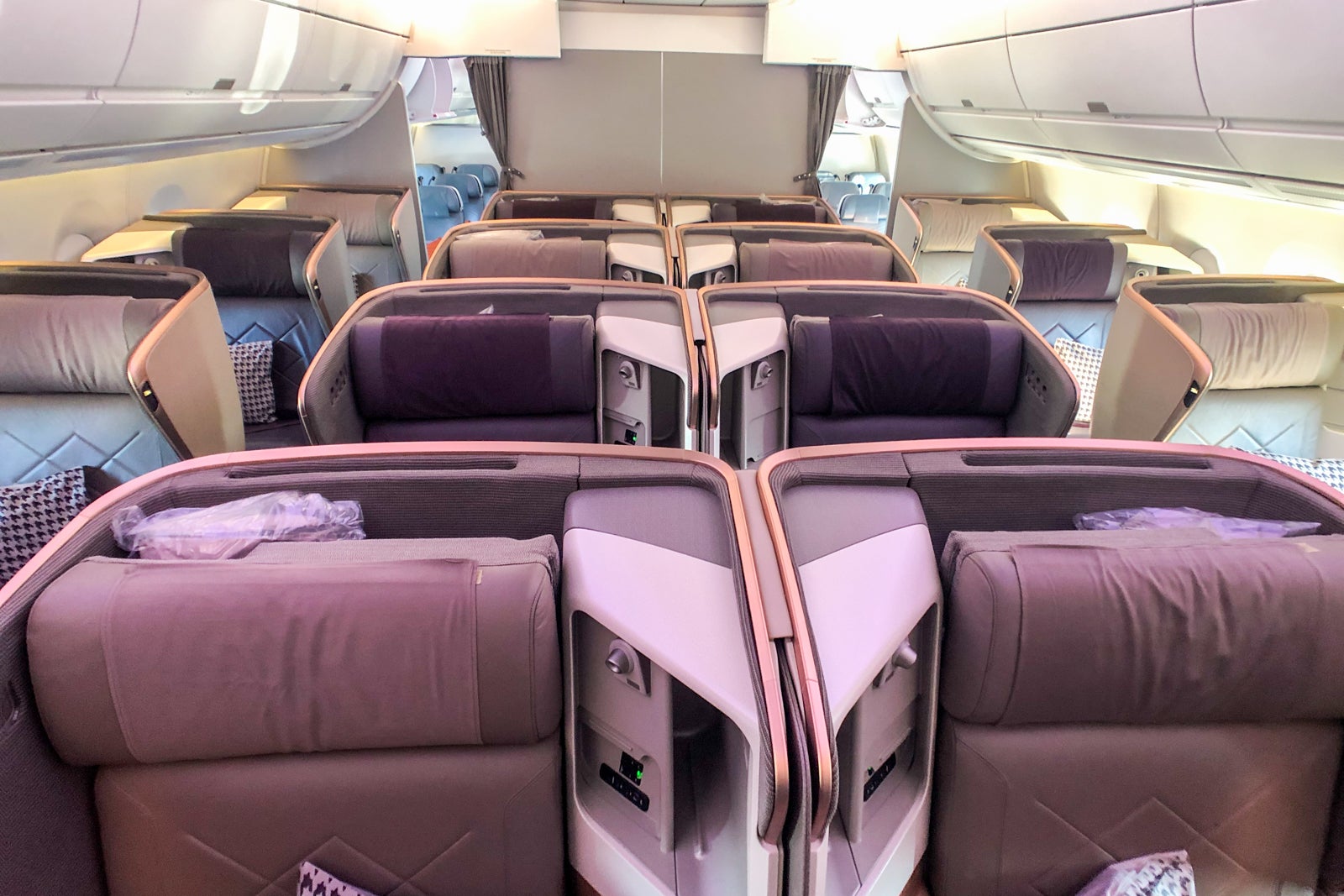
The forward cabin has 23 seats – six along the left side of the plane and down the center, and five along the right side. The aft cabin has 44 seats in 11 rows of four seats each.
At the front of the aircraft is a small galley area, while the section between the two business-class cabins contains a larger galley and two lavatories. There is another lavatory at the back of the aft business-class cabin.
I flew the three-class A350-900. On that jet, there are just 42 business-class seats, also spread across two cabins. The forward one has six rows of single seats on either side of the plane and seven two-seat rows running down the center. The smaller aft cabin has just four rows of four seats each.
There is one lavatory and a small galley at the front of business class, and two more lavatories and the main galley between the two cabins. There is no aft lavatory between business class and premium economy.
Between the two variants, I prefer the A350-900 over the ULR given the smaller size of the business-class section and the higher lavatory-to-passenger ratio.
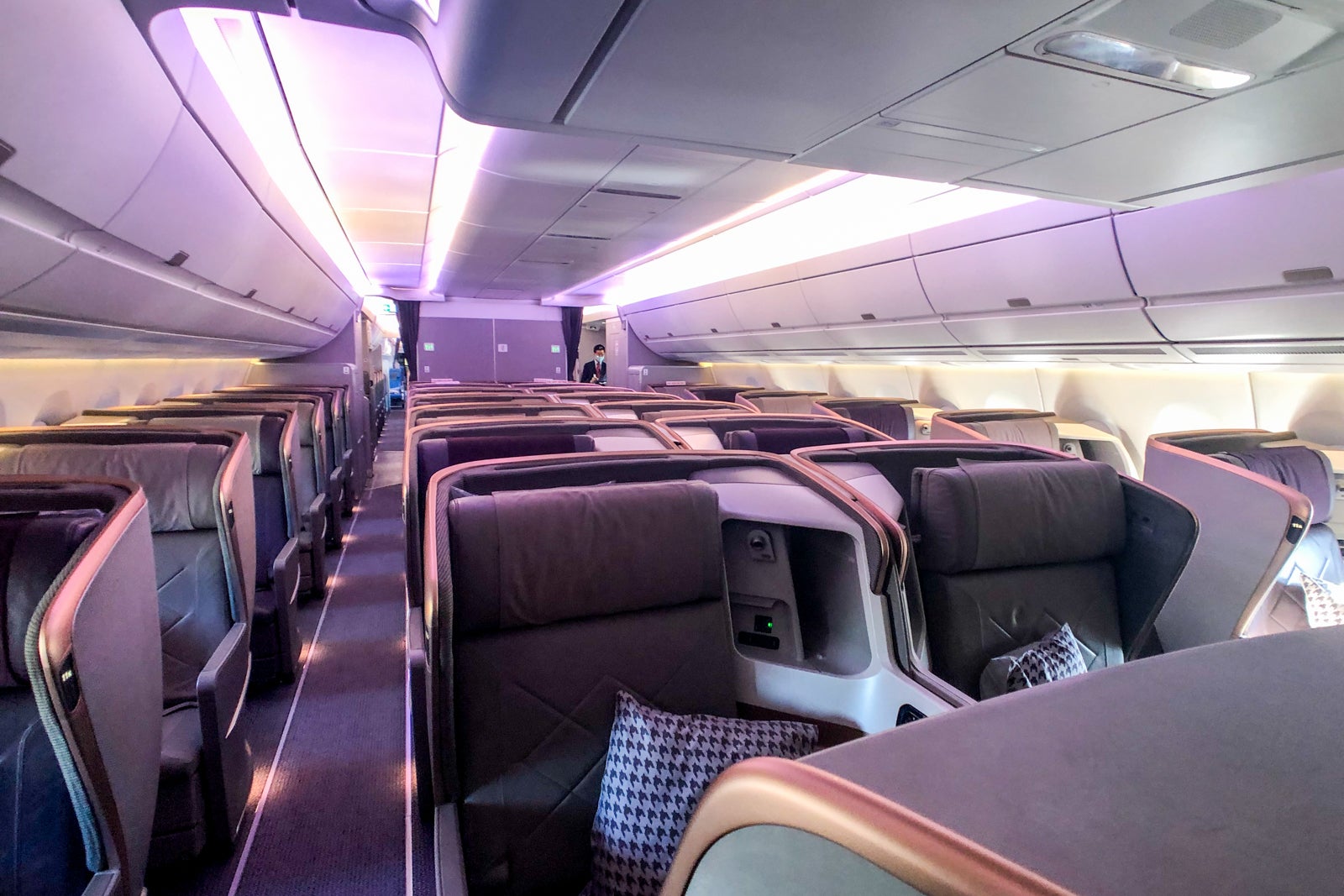
In terms of service flow, I have found Singapore’s flight attendants to be equally efficient in both configurations with meal service, especially since passengers could pretty much dine on demand, so service times were staggered over the course of 17- to 19-hour flights.
A380
The A380 is a massive jet with two full decks. As you might imagine, the business-class section is quite a bit larger than on its single-deck counterpart.
All 78 business-class seats are located on the top deck of the plane behind the six-suite first-class cabin and are spread across three cabins. The forward one is the largest, with 50 seats – 12 rows with all four seats across them in a 1–2–1 pattern, and two side seats in the last row by the lavatories.
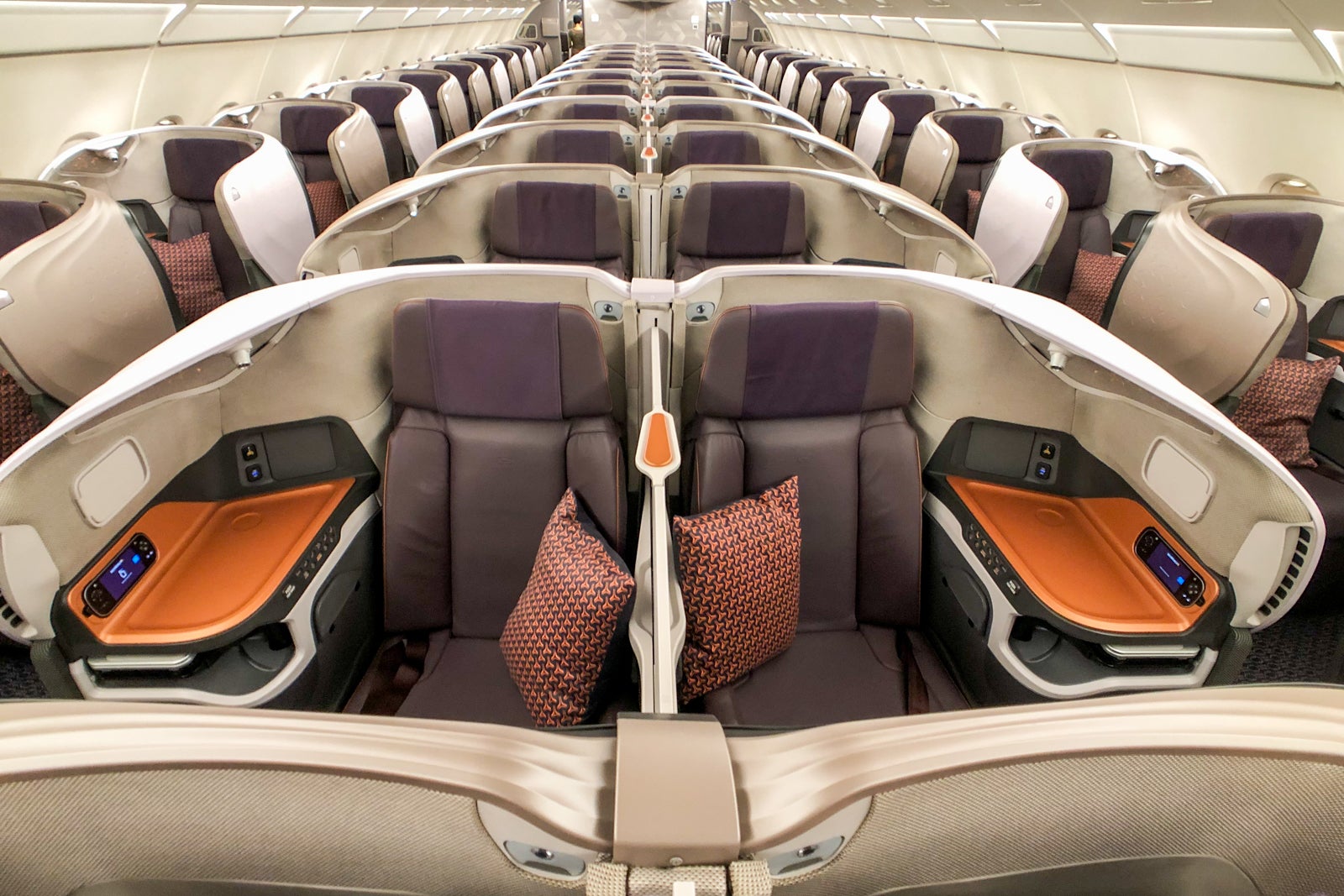
The second cabin has five rows of four seats each, and finally, there is a very small back cabin with just eight seats across two rows. There is one galley separating first class from business class. Between the two larger business-class cabins is an area with four lavatories, and then there is a galley and a single lavatory at the back of the deck.
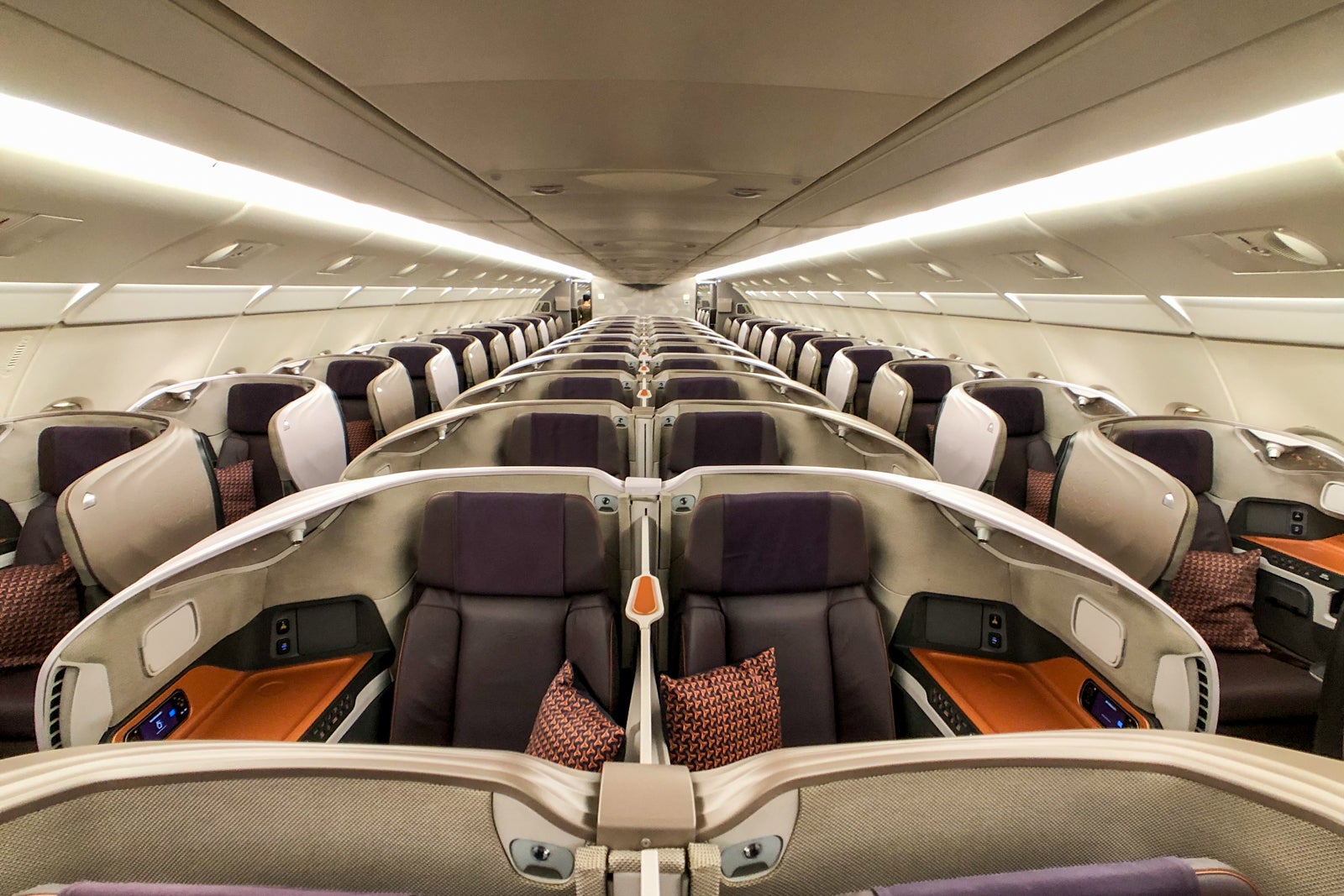
During my overnight flight, the lavatories were mostly available except during the busiest times right after takeoff and before landing, when people were freshening up after the in-flight meal. Speaking of which, flight attendants offered passengers their main meal either right after takeoff or about two hours before landing in Sydney.
Given the post-midnight departure, most passengers, myself included, opted to have breakfast instead of dinner. Despite the fact that there were so many more passengers in business class on the jumbo jet than on the A350, the airline staffed it sufficiently so that meal service was just as diligently executed as on the smaller plane. The whole thing took about 60 minutes from start to finish with only about 5-10 minutes going by between crew members coming to check whether I needed anything else.
Seat type and layout
On both the A350 and the A380, Singapore Airlines business-class seats are configured in a forward-facing 1–2–1 pattern. While the two seat types might look much the same to some folks, there are actually significant differences.
A350
When Singapore Airlines began taking delivery of its long-haul A350s, aviation enthusiasts were a little disappointed to see that the airline had stuck with the same business-class seats it already had aboard its Boeing 777-300ERs rather than the newer ones it planned on installing aboard its A380s.
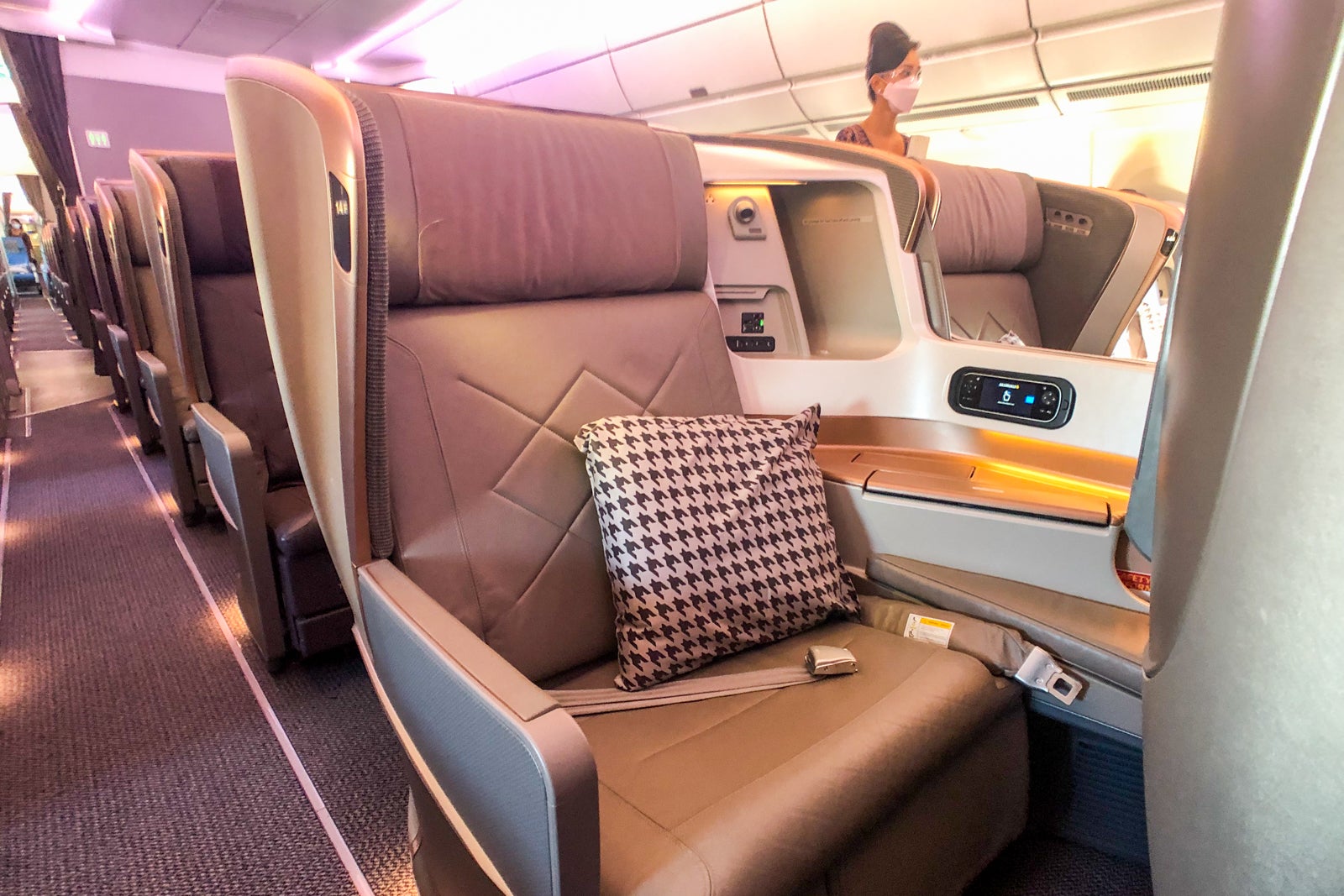
The seats are upholstered in diamond-stitched Scottish leather and are alternately a light tan or dark mocha color, each with a small houndstooth accent pillow, lending the cabin a varied but sophisticated look. In upright position, they resemble futuristic armchairs with a shelf across from the seat that acts as an ottoman while the passenger is seated and a footwell when the seat is converted into a bed.
Each seat has a narrow, two-inch armrest on the aisle and a wider one holding the table and a small stowage compartment either on the window for side seats or between the two seats for those running down the middle of the cabin. The seats along the center can be separated from one another by a movable privacy divider that passengers can raise or lower depending on whether they are with a companion or traveling solo.
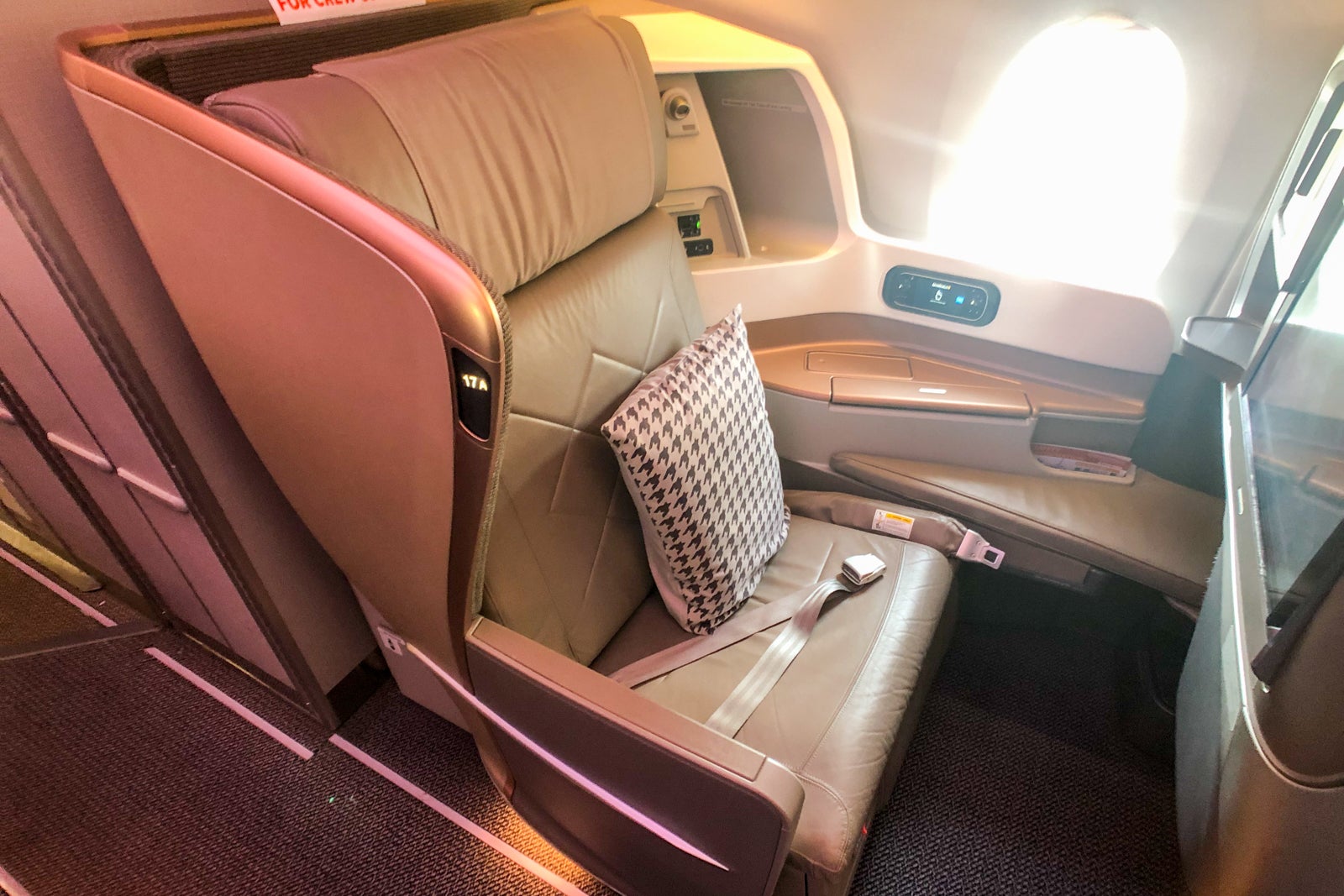
Unlike competitors such as Qatar Airways’ Qsuites or Delta One Suites, these seats are not fully enclosed with sliding doors. Rather, they have a hard shell with a privacy screen that extends 12 inches beyond the seatback to shield the aisle from view.
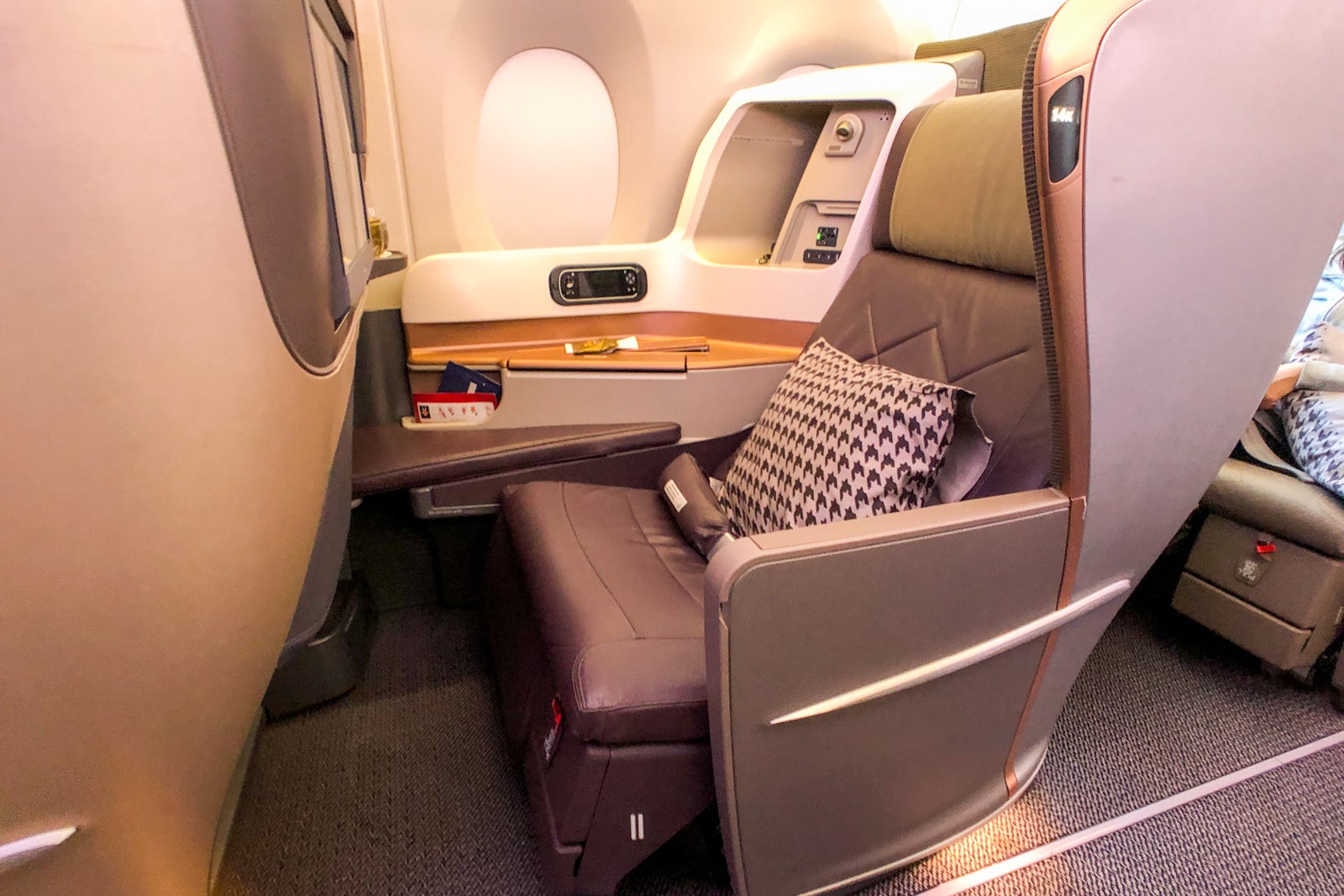
The most important thing to note about these seats, however, is that they only recline slightly into a sort of cradling position where the leg rest raises and the seatback lowers into what the airline dubs a “Lazy Z.”
When it comes time to sleep, flight attendants help passengers flip the seatback over, converting it into a mattress, which they then dress with a pad, a duvet and larger pillow.
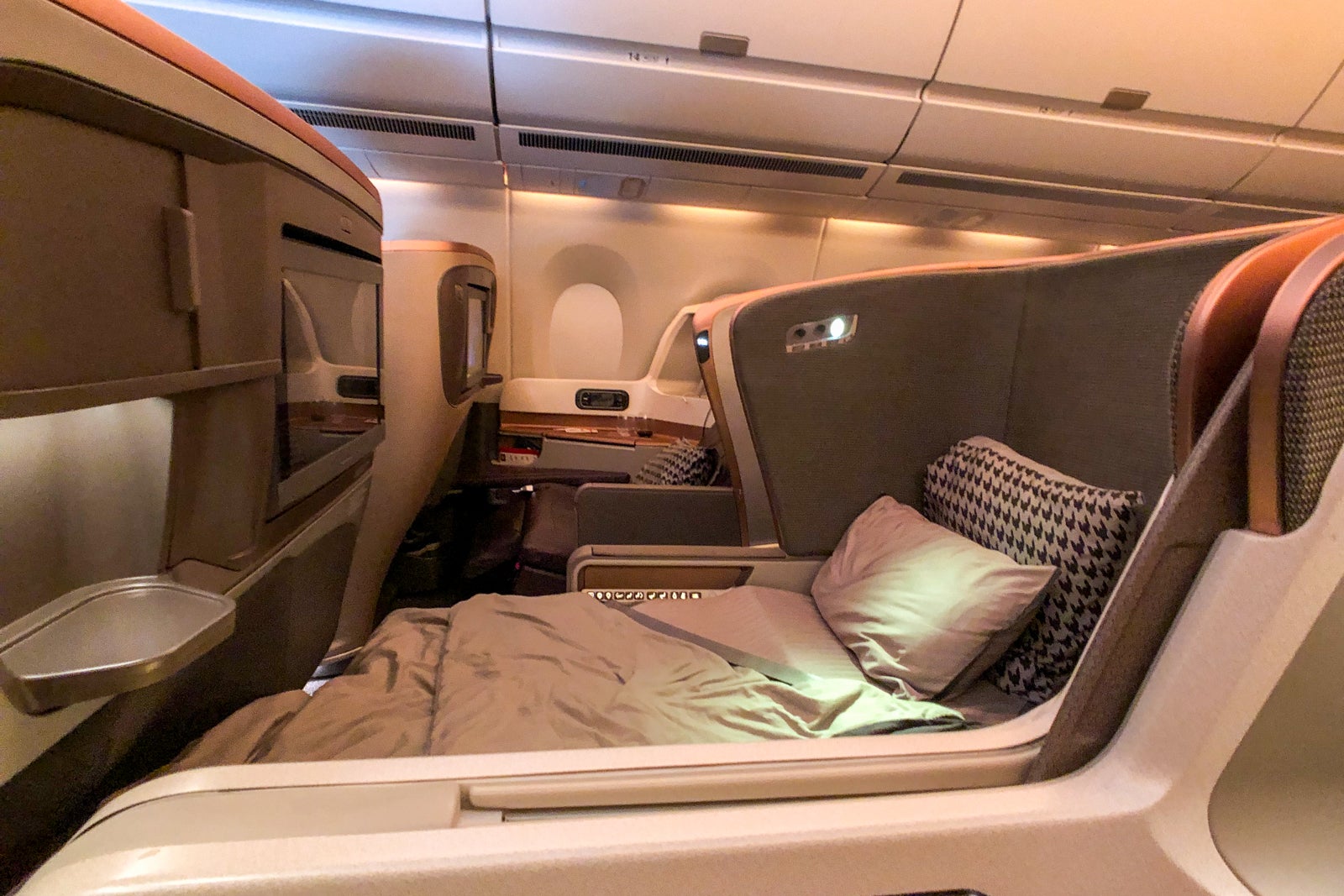
I find that after the initial meal service, I end up converting the seat into a bed and leaving it that way for the rest of the flight, rather than going back and forth from seat to lie-flat, since I can sit up and stretch out on the flat surface pretty comfortably with a pillow at my back. Still, the lack of seat range can feel constrictive at times.
A380
By contrast, the A380 business-class seats are more like those you’ll find aboard other airlines in that the seat reclines from upright into a lie-flat and back again without having to flip it over or perform other acrobatics. The individual components, including the seatback and leg rest are also more responsive and maneuverable thanks to more controls. This allows passengers to find the best positioning for their comfort more easily than on the A350.
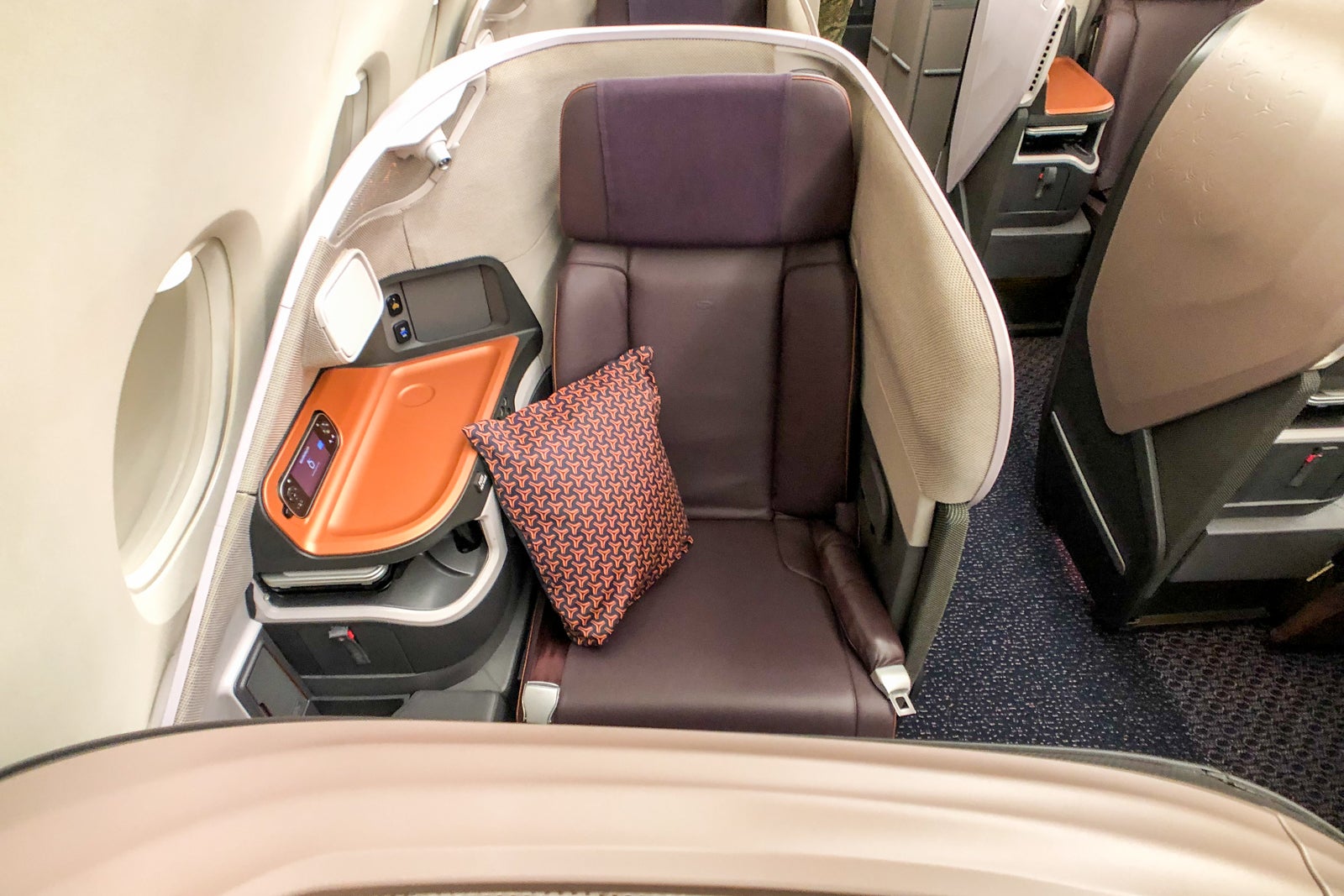
When Singapore Airlines began taking delivery of five new A380s in 2017, it decided to install a new version of its business-class seats aboard the jet (not to mention its new first-class suites) as well as to retrofit its existing A380 fleet with them over time.
These beauties are upholstered in muted, purple-hued Poltrona Frau leather with playful orange piping. They feel like sports-car seats thanks to their slim-line profile and subtle side “wings” along the back that cradle passengers while seated and then flatten for the bed mode. They are also accented with patterned purple and orange throw pillows.
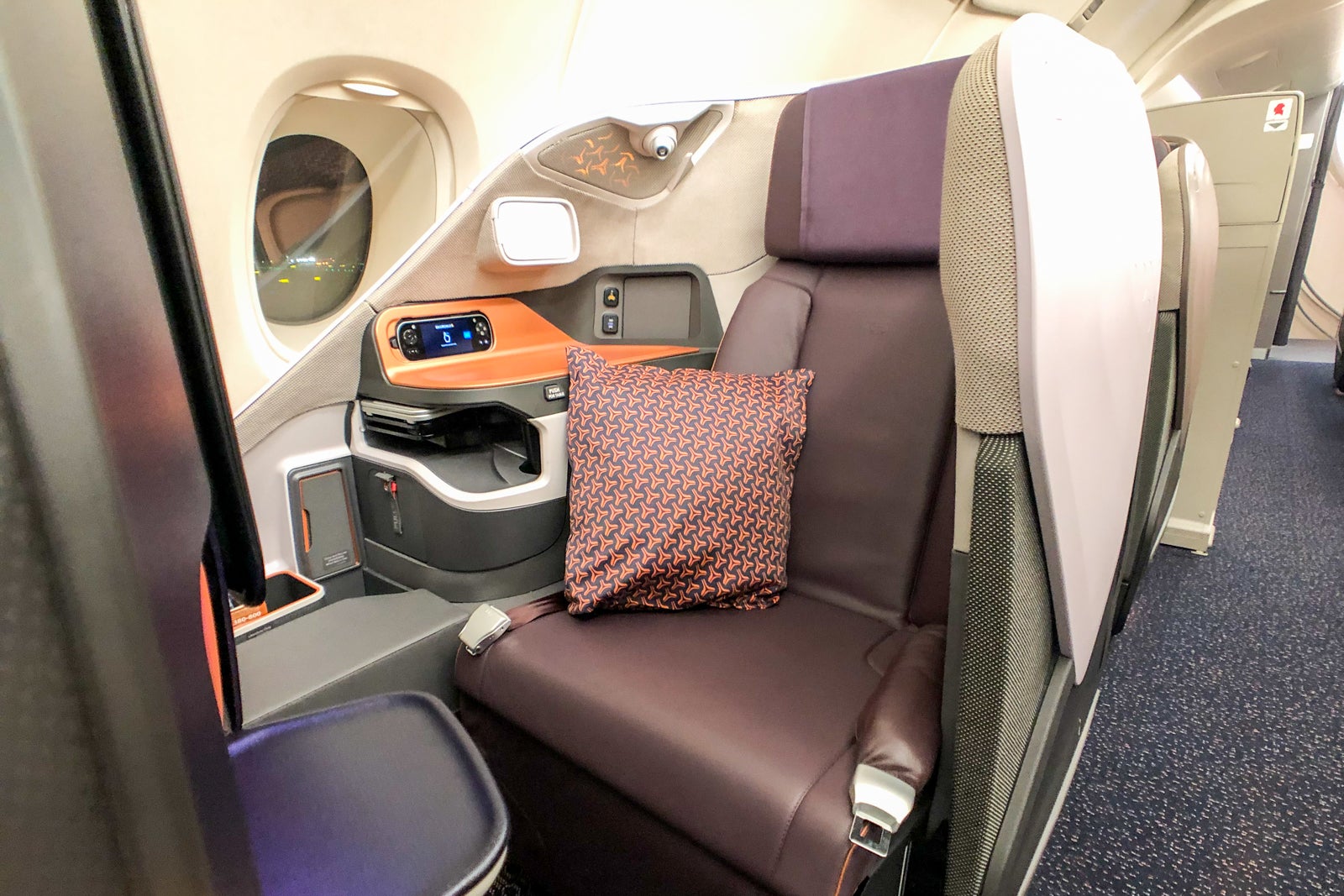
Interestingly enough, these seats don’t have fixed armrests, but instead rely on small flip-down leather panels to act as armrests.
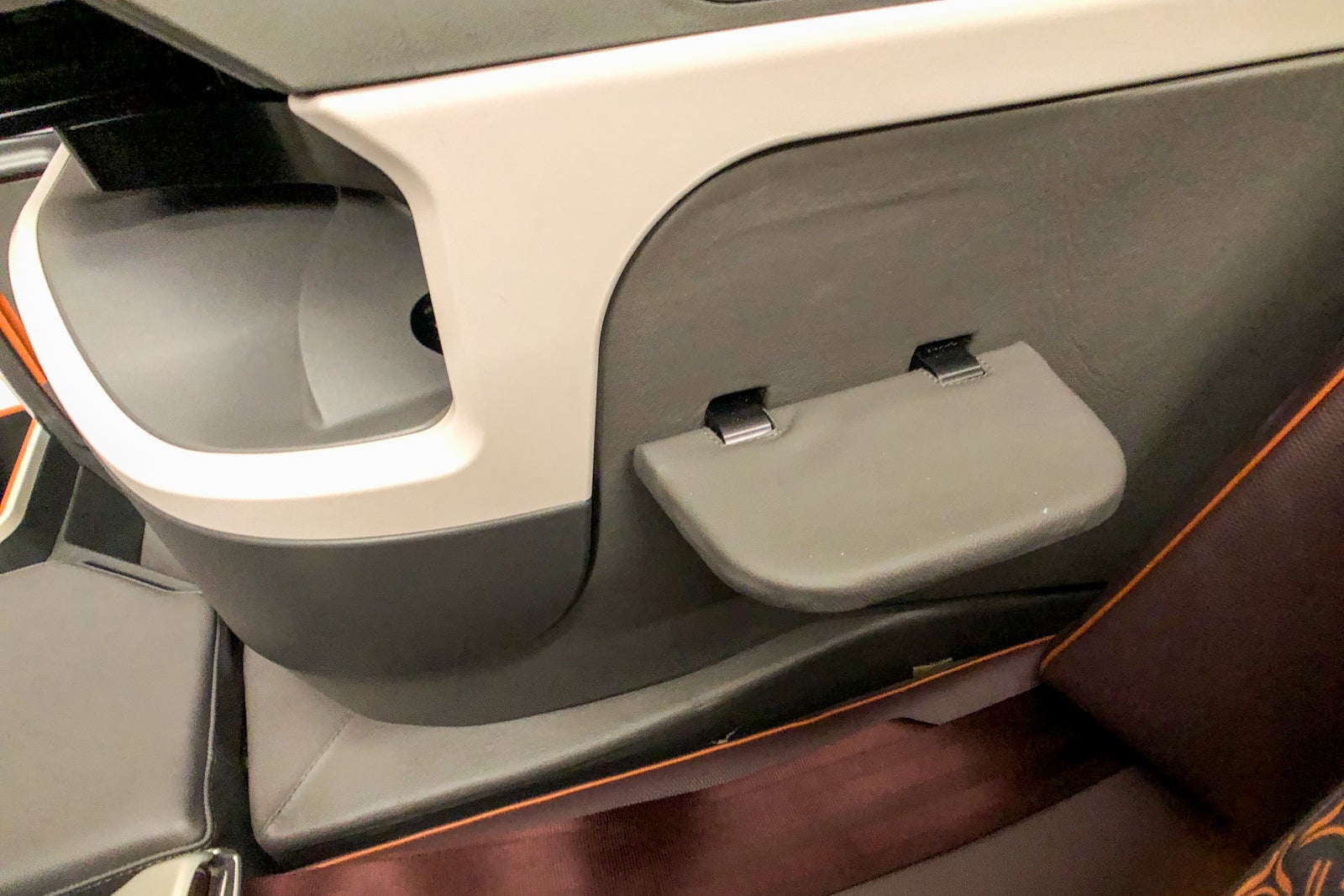
They do, however, have a large side panel that holds the tray table and a shelf for stowage. Side seats have the non-armrest along the aisle and the larger side panel along the window.
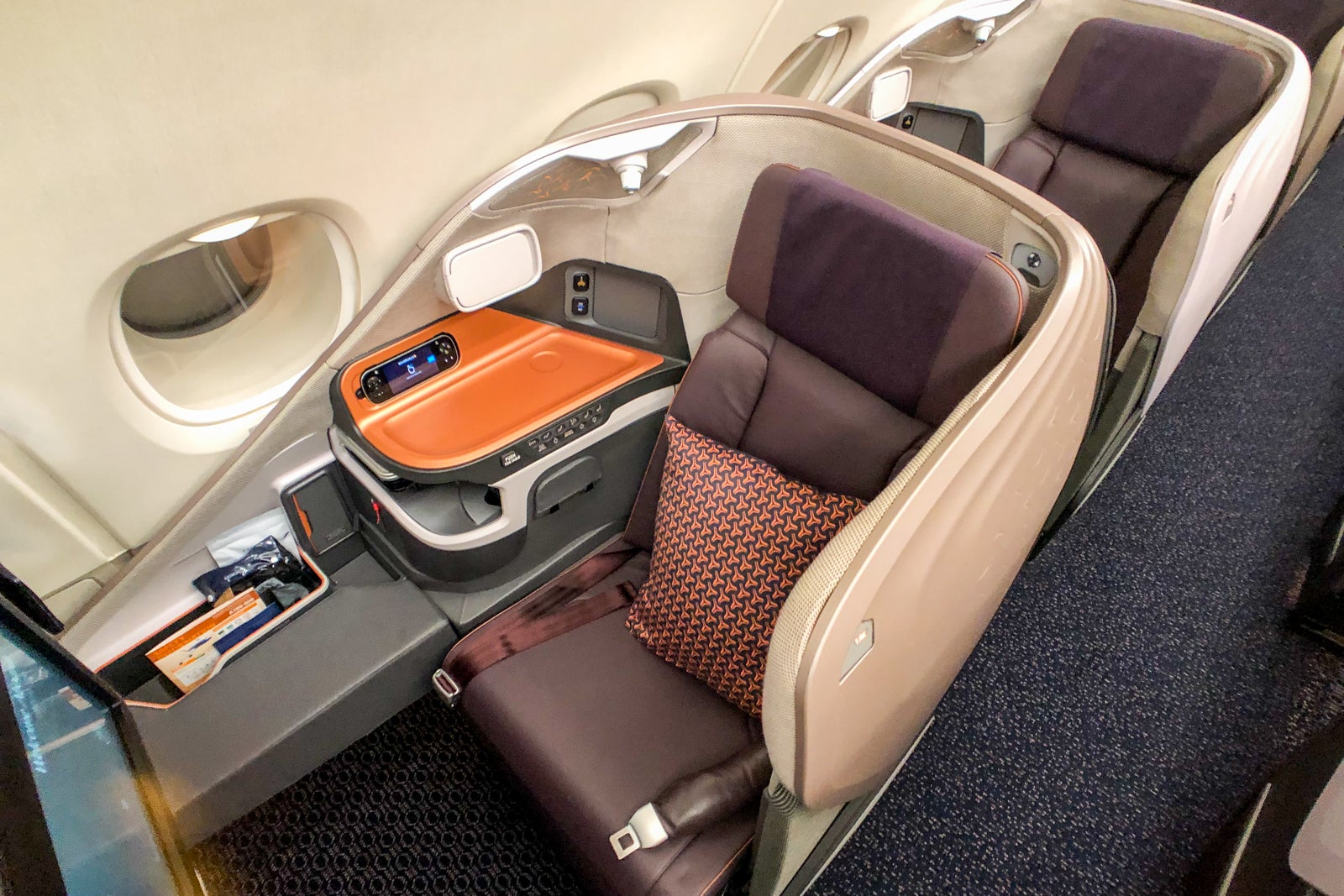
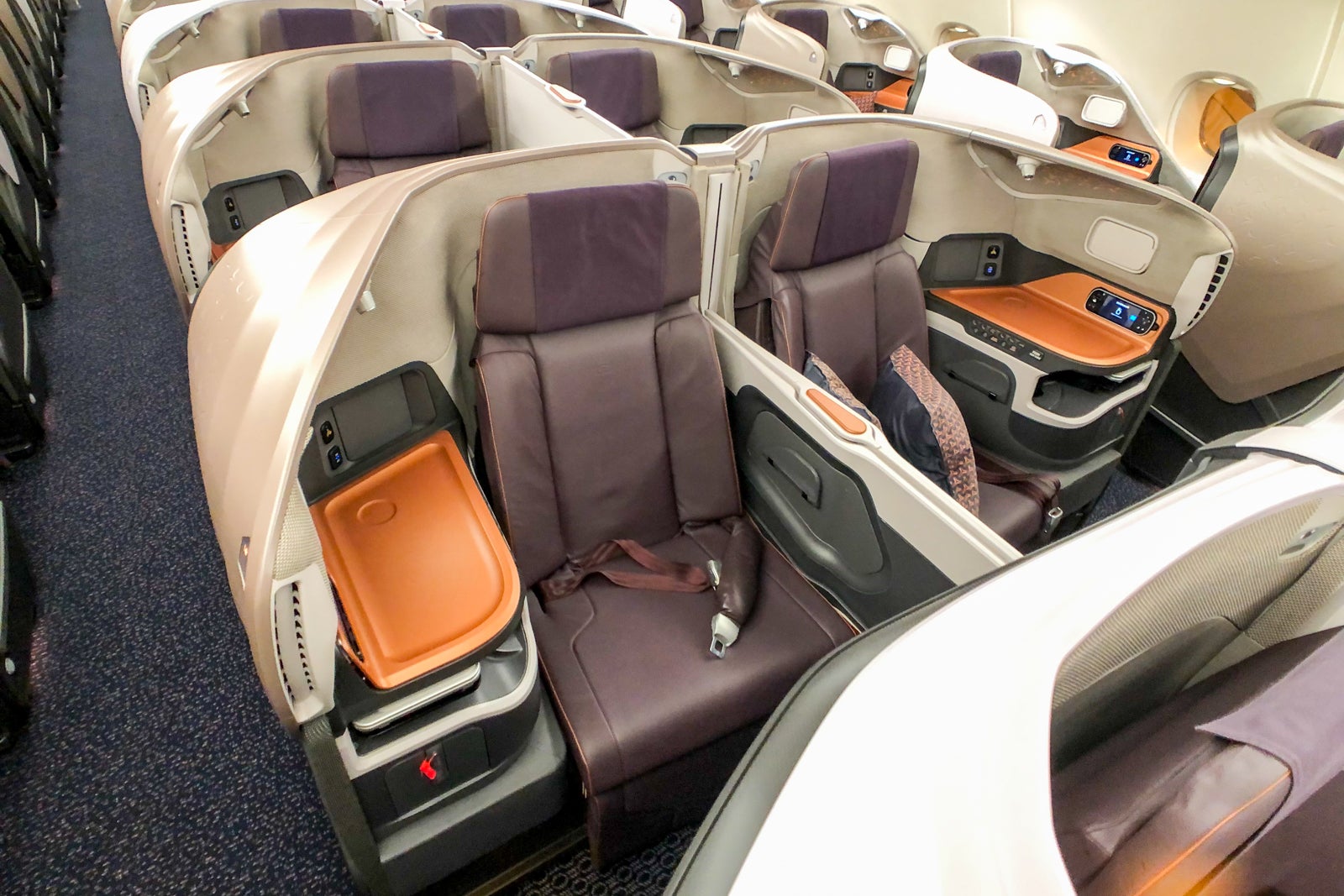
Center seats, meanwhile, have their larger side panels along the aisle and the leather shelves on the narrow wall that separates them from their neighbor.
Solo travelers can raise a privacy divider between these center seats, while folks traveling together can leave the dividers down and can even have their seats made into a double bed of sorts – flight attendants can lower the center partition all the way and cover it with a duvet, though each passenger is still stuck on their respective side using their own footwell.
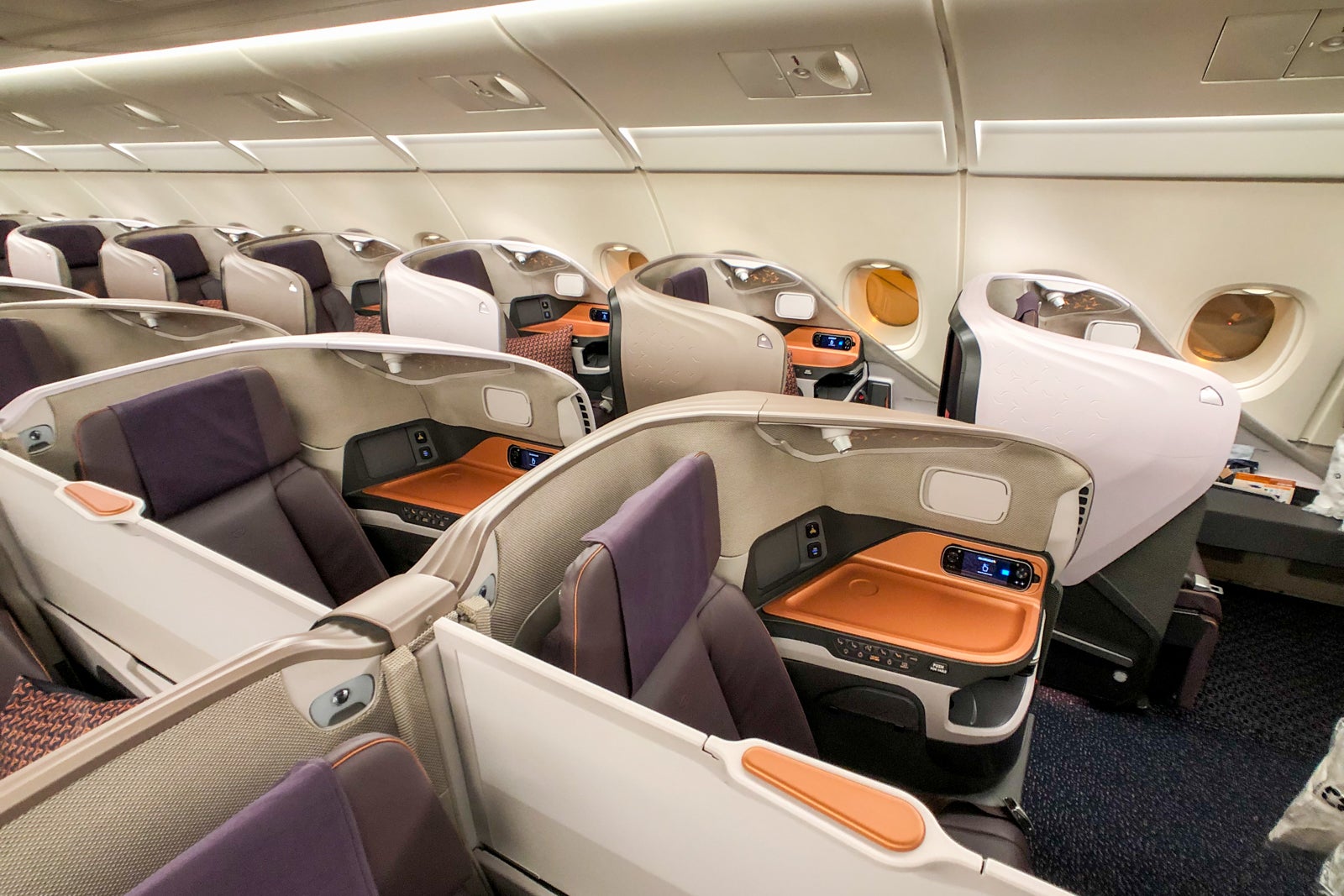
Like their A350 counterparts, seats aboard the A380 are not fully enclosed, but rather are surrounded by pod-like casings with sculpted, rippling surfaces and shields that extend 19 inches beyond the seatback and along the aisle for even more privacy than on the A350. On side seats, I noticed the shell extended slightly over the window, forcing you to lean forward to look out of it, which was an odd design choice.
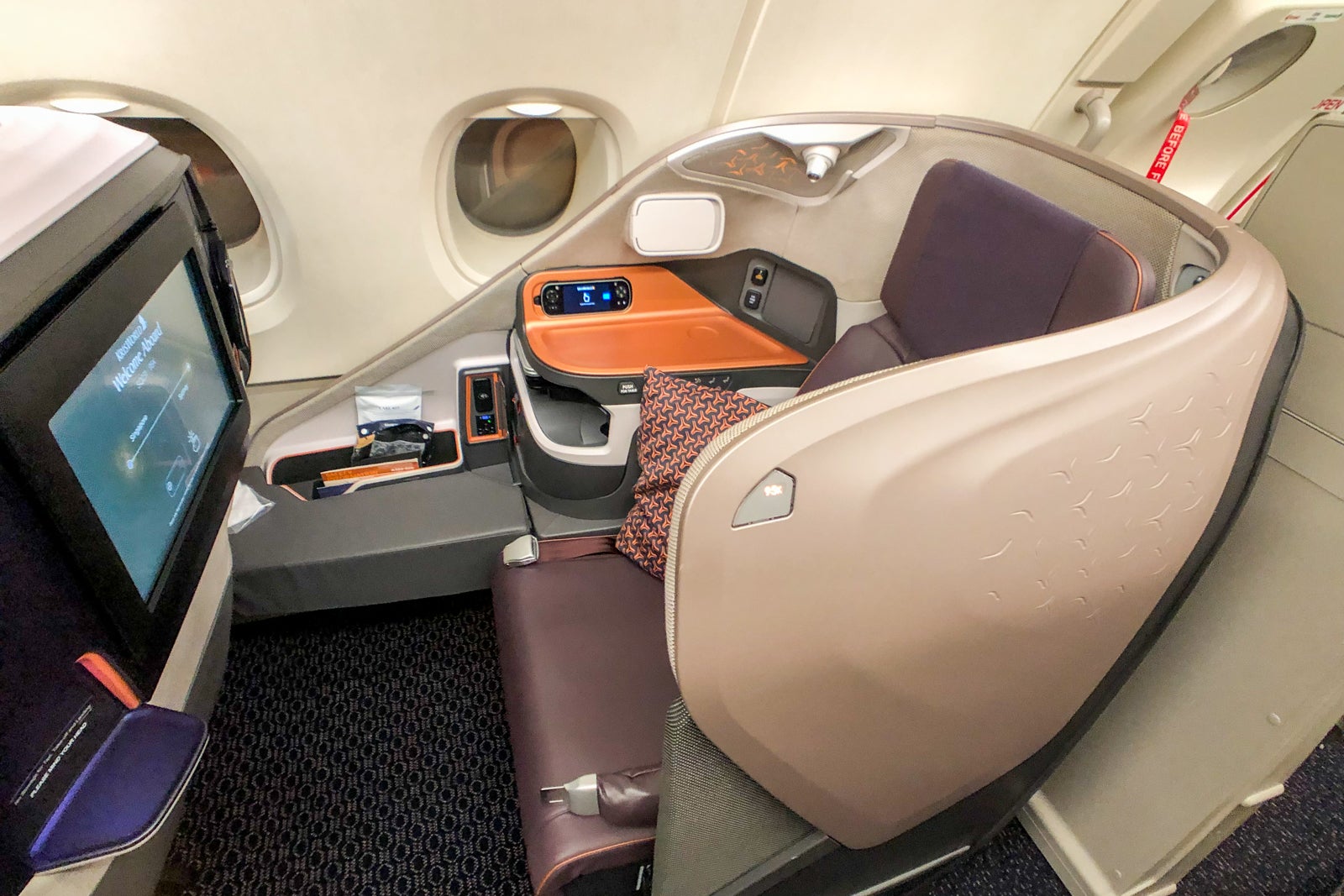
Seat dimensions
The backflip-versus-recline nature of these two seats mean there are some noticeable dimensional differences as well.
A350
Singapore Airlines’ A350 business-class seats are 28 inches wide at the shoulders and at the waist. They have 60 inches of pitch – the distance from the seatback to the back of the seat in front of it.
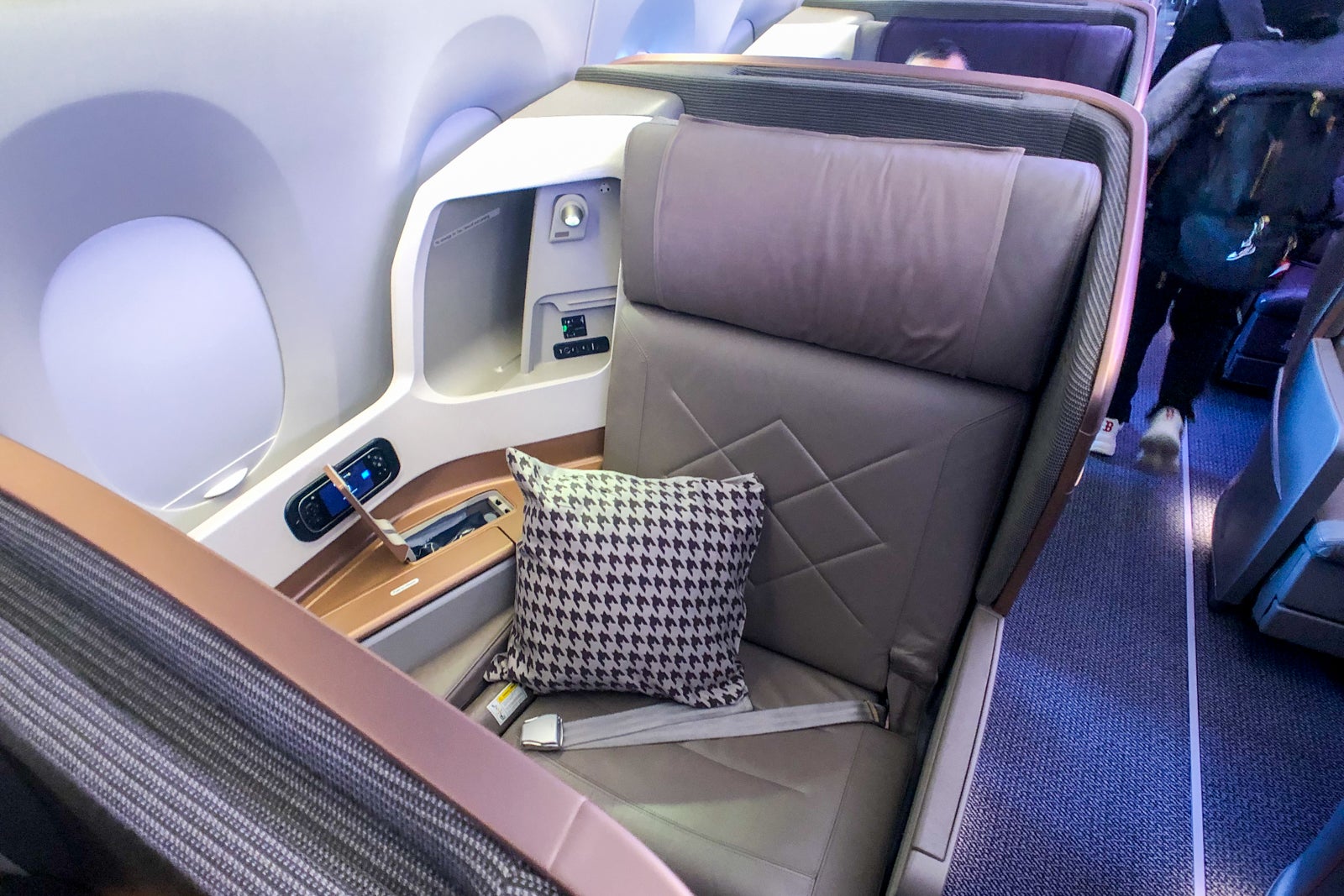
Their tray tables pop up from the wide armrest and swing over the seat. They are 20 inches long and 14.5 inches wide and slide back and forth so that you can get into or out of your seat easily.
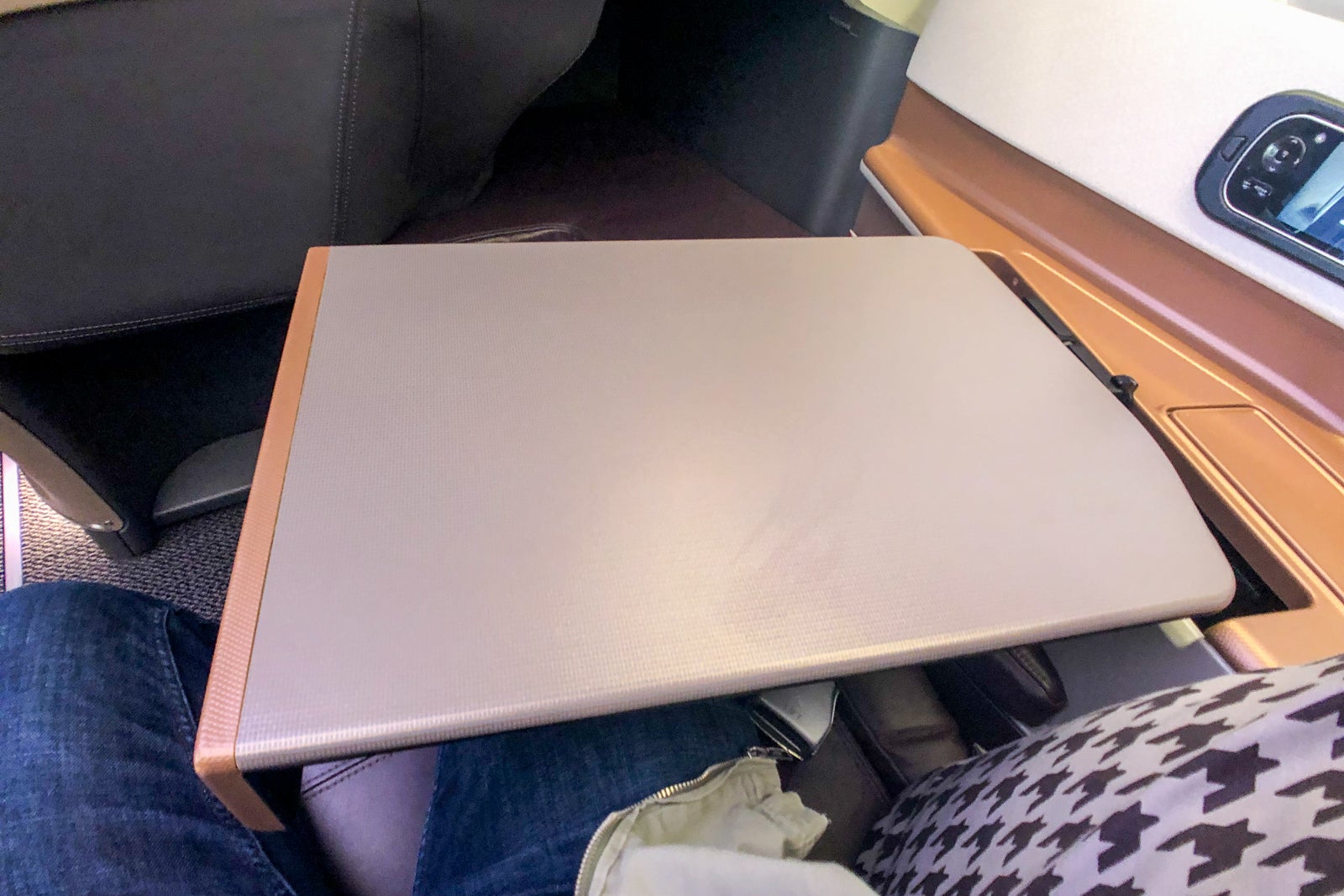
A380
Seats aboard the A380 feel slightly more compact since they only have 55 inches of pitch and are 25 inches wide at the shoulders and waist in the upright position.
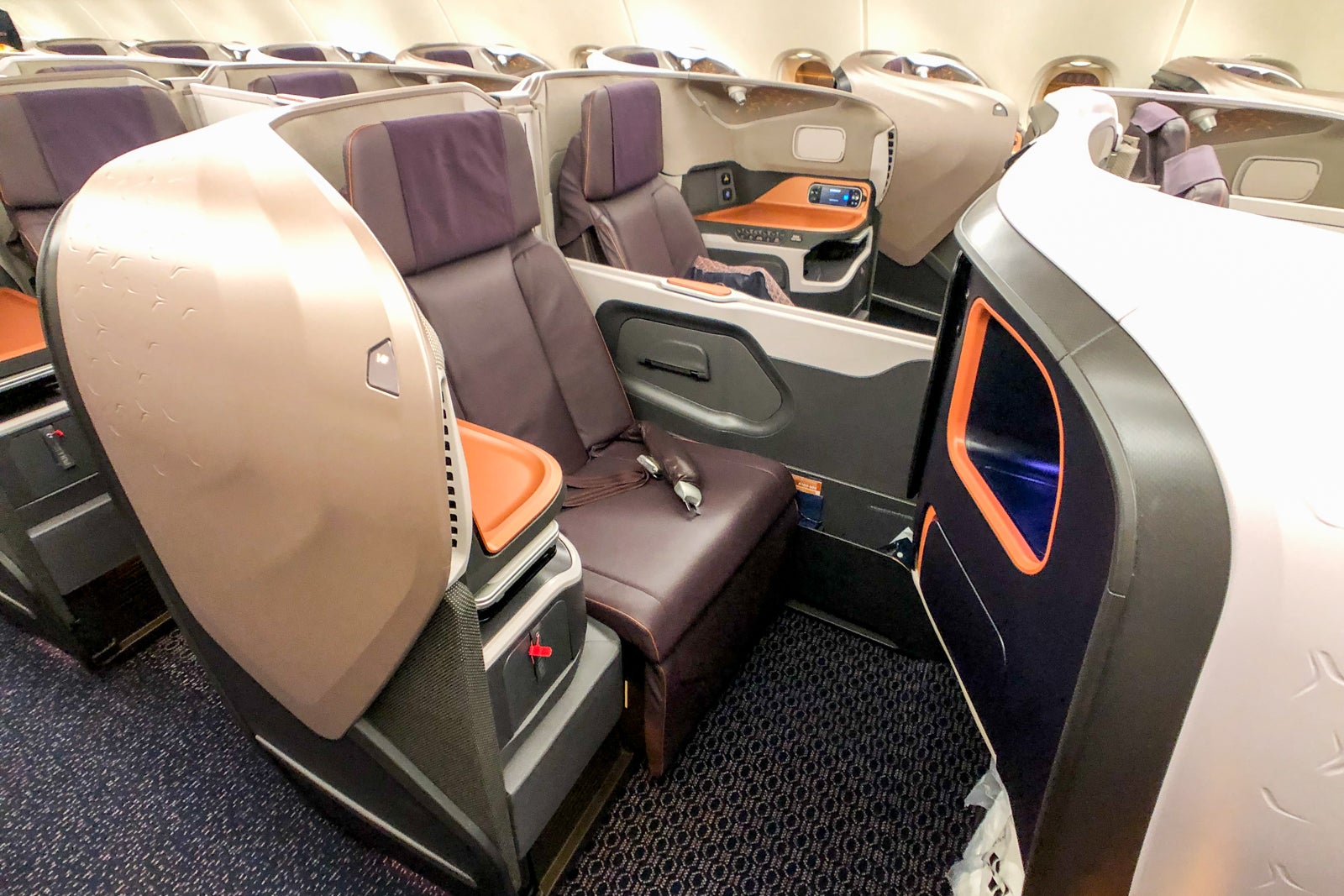
Their tray tables swing out horizontally from the larger armrest and fold out to be 20.5 inches long by 14.5 inches deep.
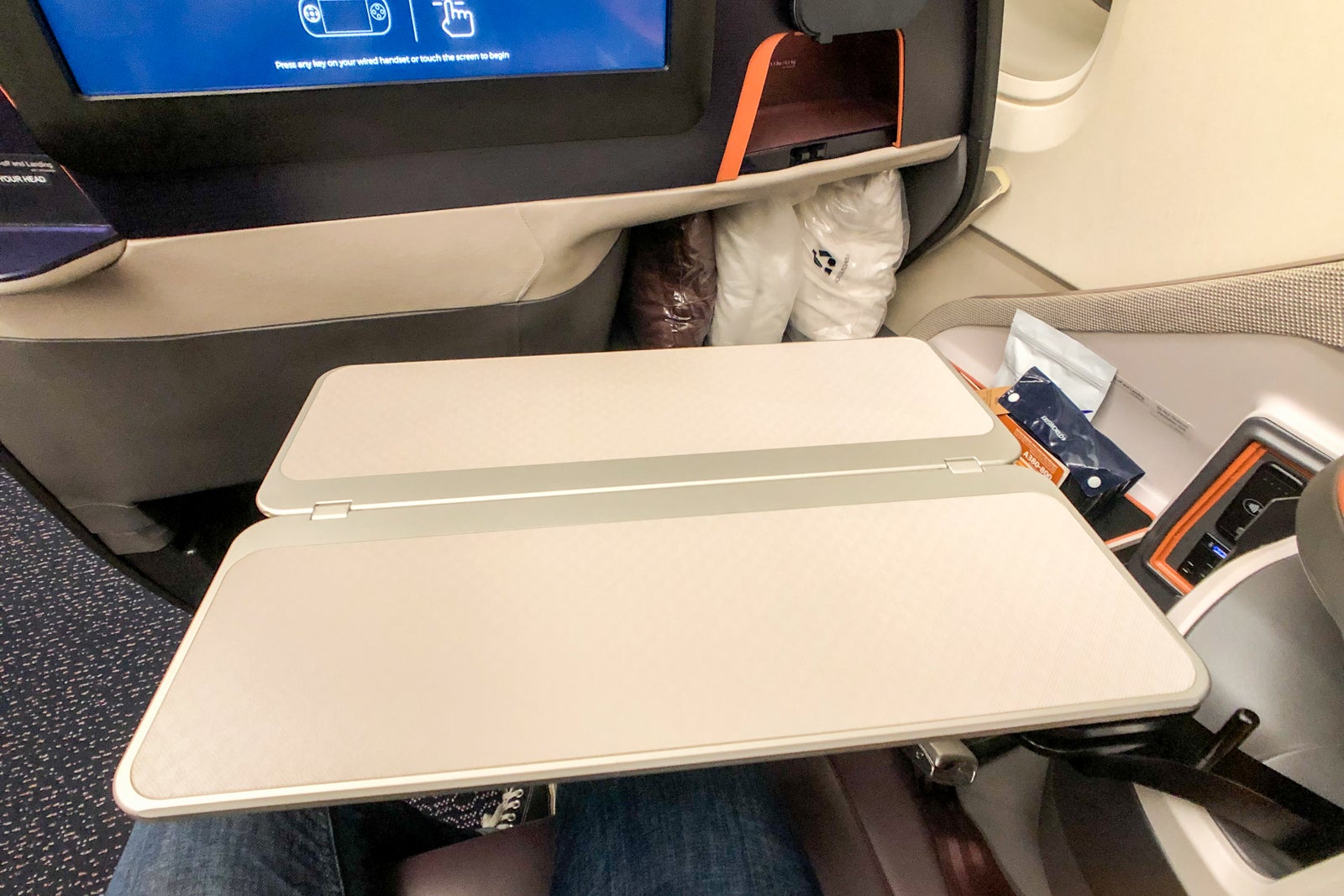
The bed
Despite the seats’ differences, the lie-flat experience is pretty similar, probably thanks to the consistency of the mattress padding and bedding.
A350
With the seat flipped over into lie-flat mode, the bed measures 28 inches across and 78 inches long. The diagonal angle of the seating area where you shift slightly to put your feet into the cubby means there is extra surface area where your knees go – about 14 inches wide – that lets you scrunch or turn a bit more easily.
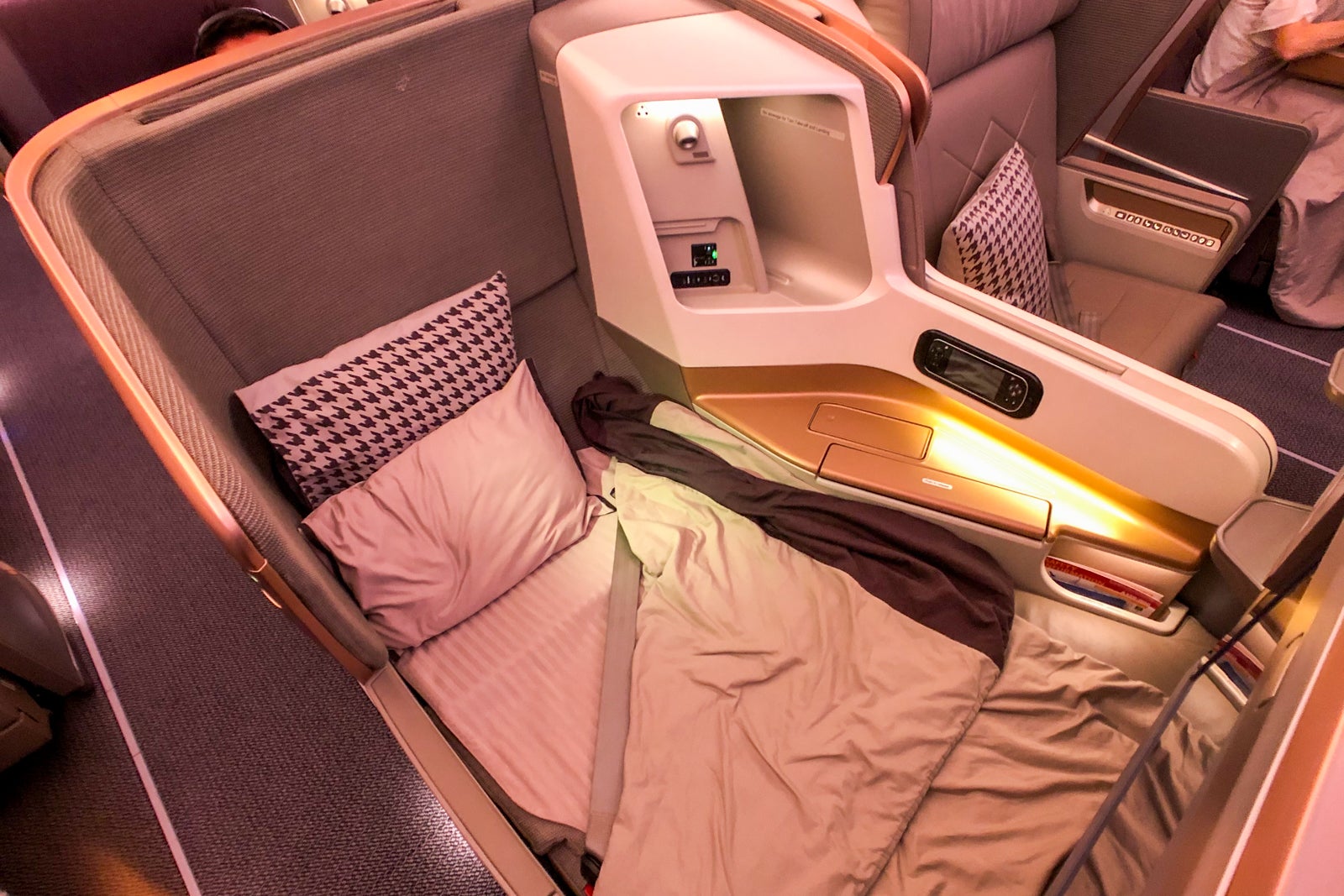
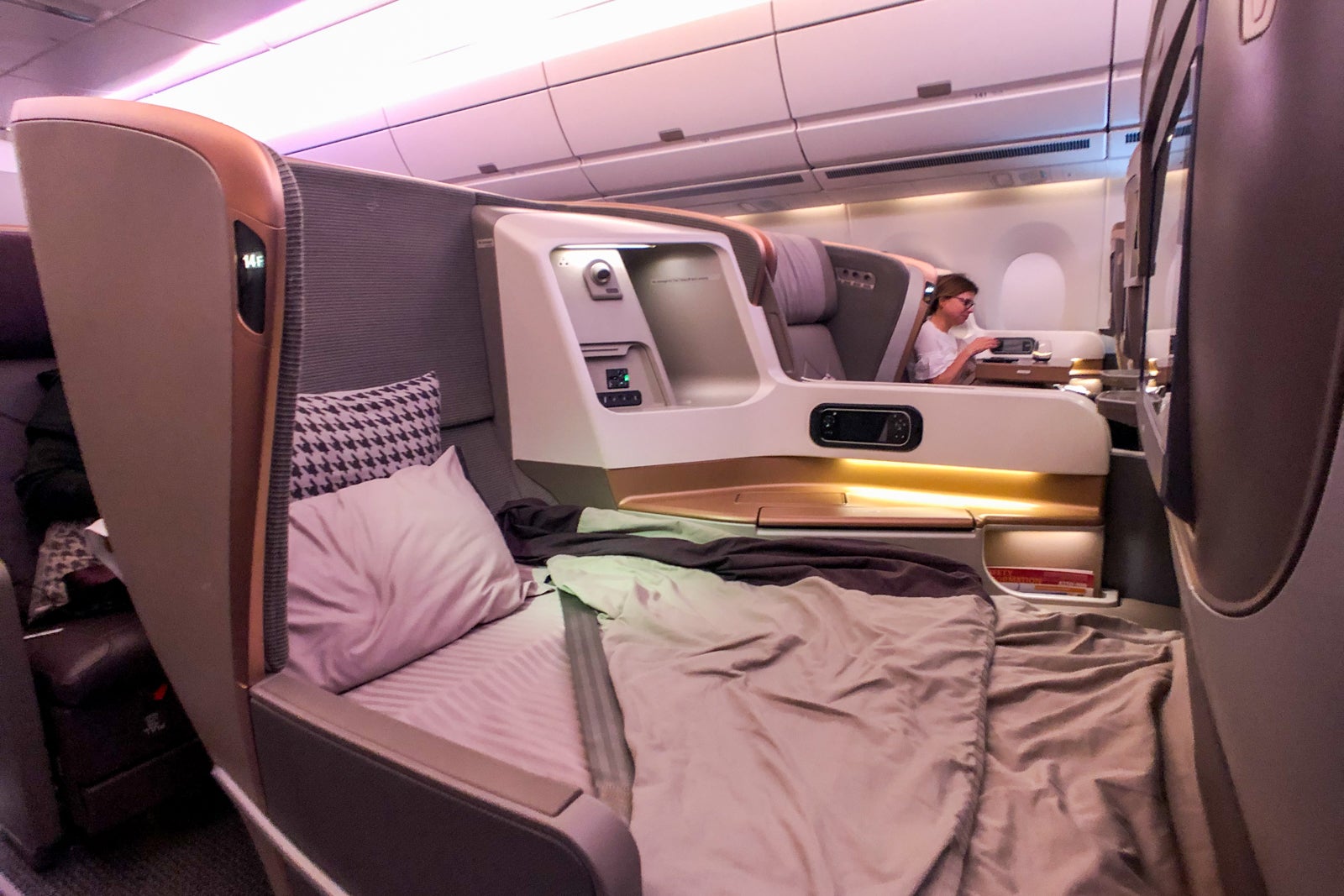
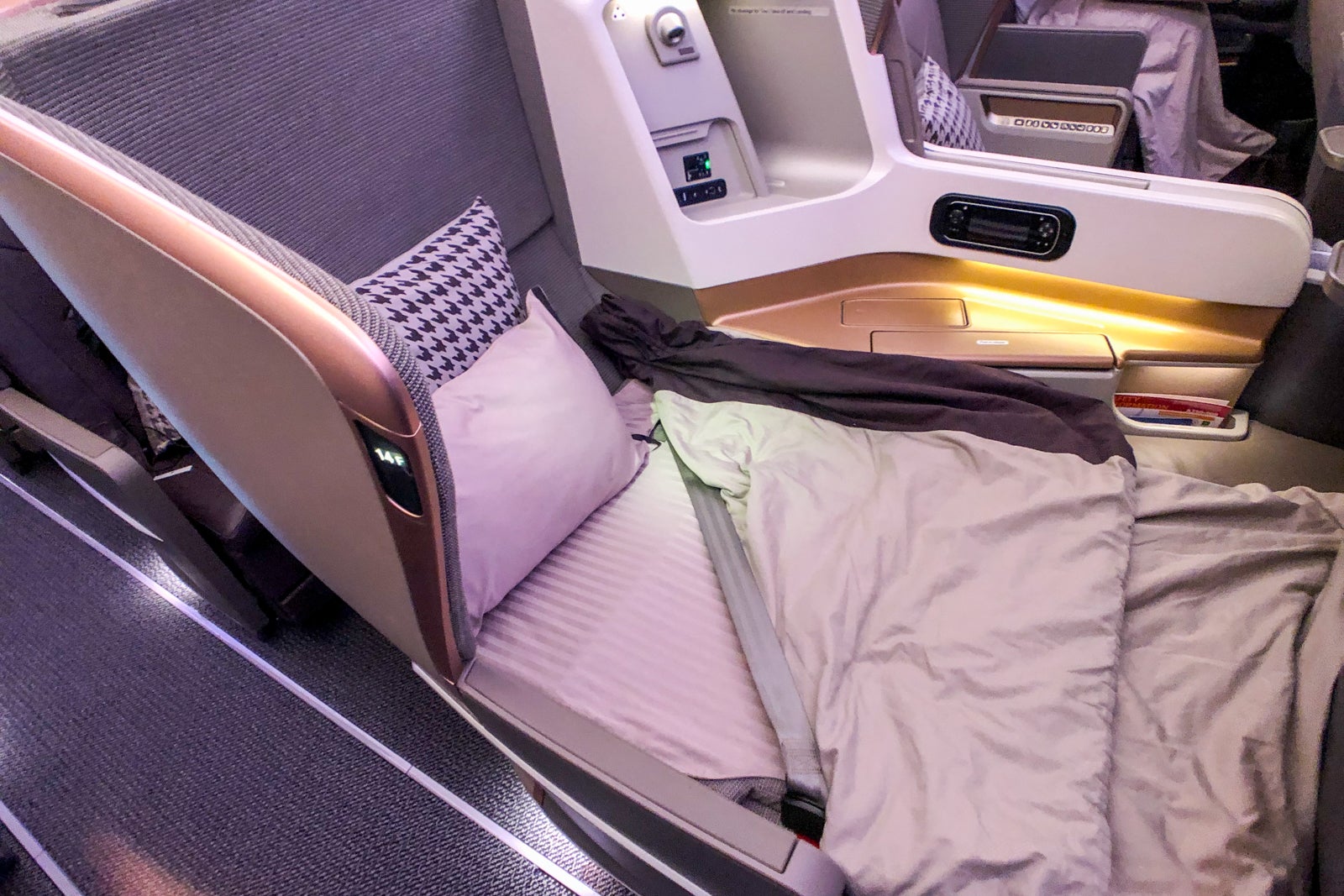
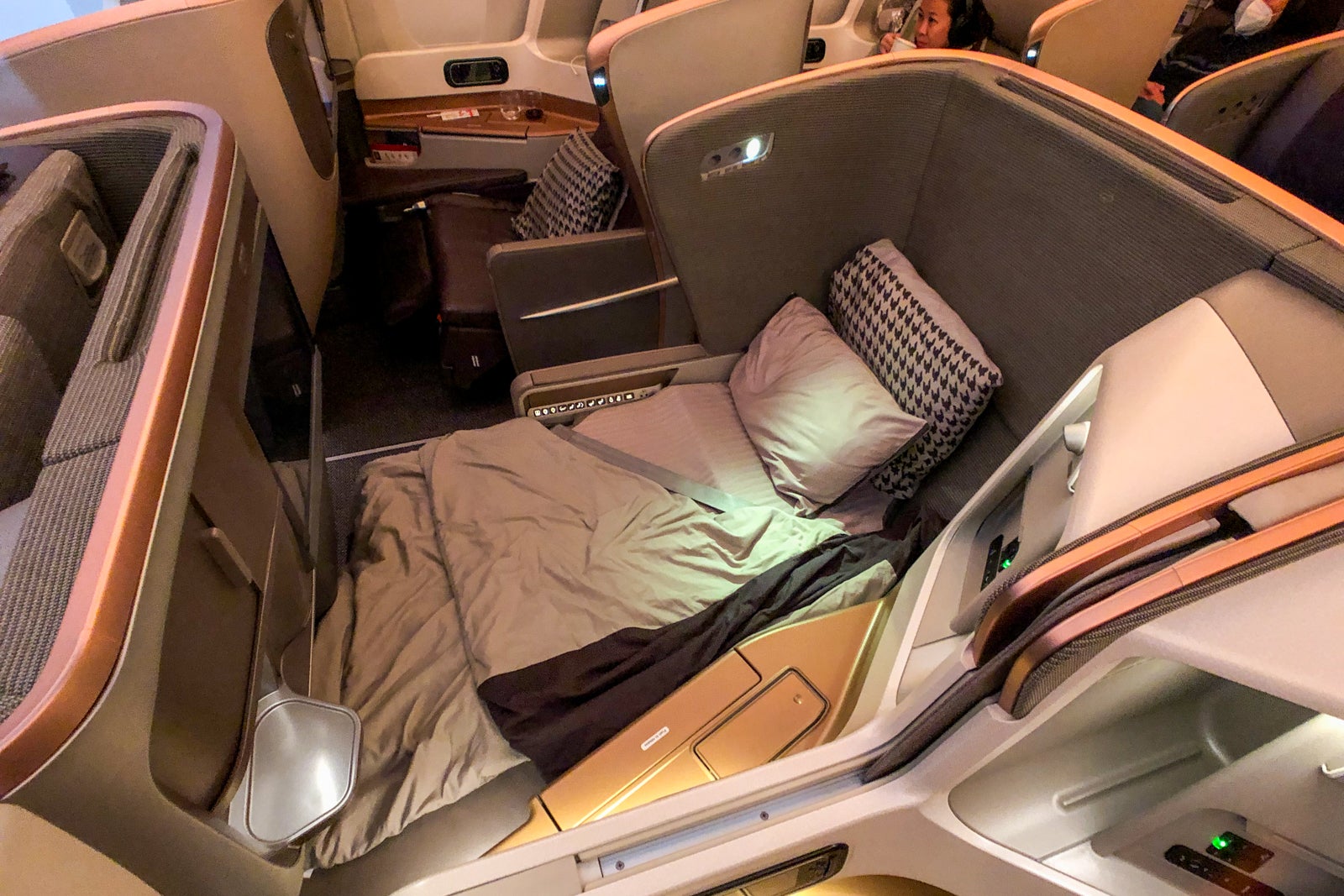
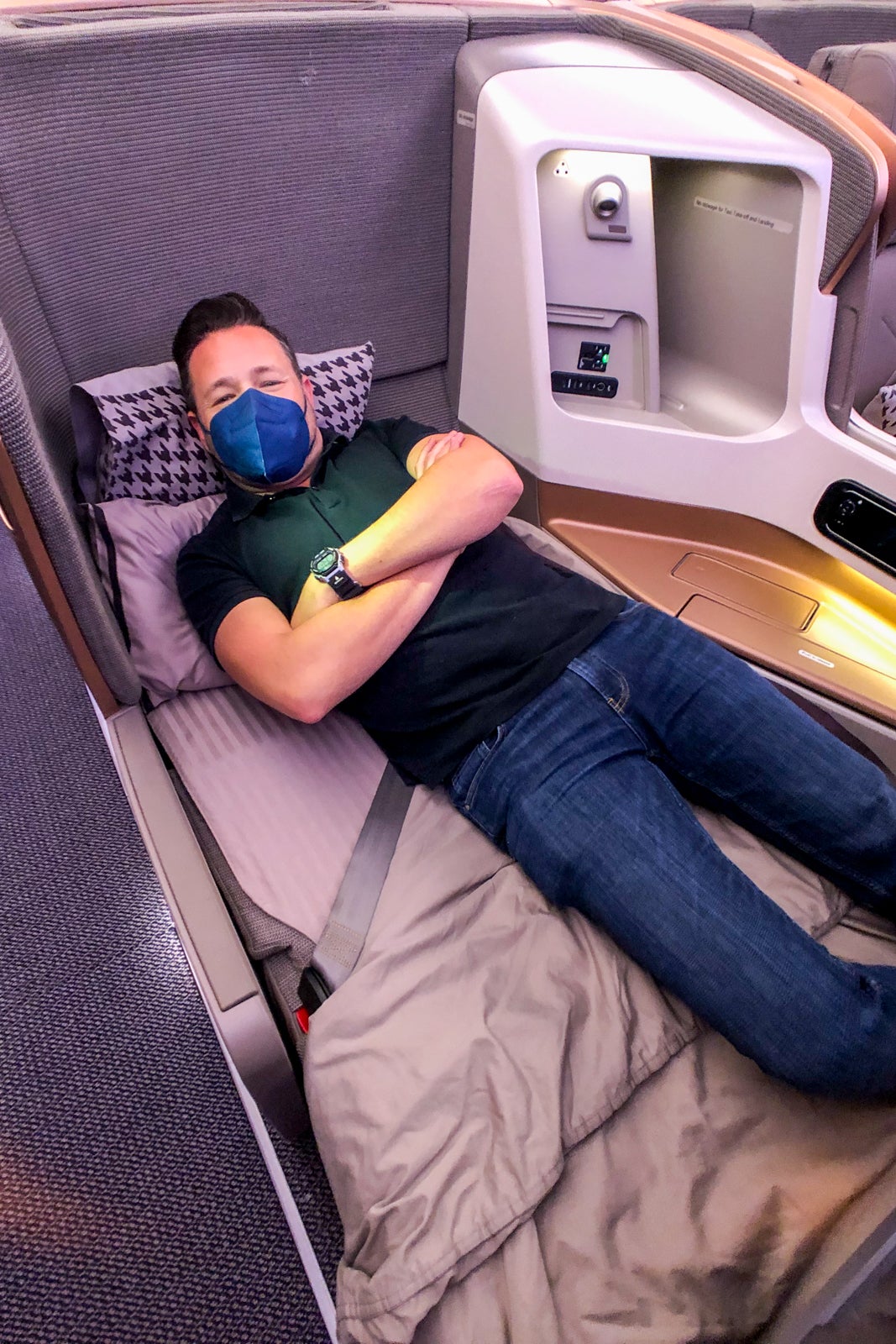
The main complaint folks seem to have about these seats in lie-flat position is that the foot cubby can feel restrictive. I measured it to be 11 inches wide, 12.5 inches high and 15 inches deep, which means it isn’t very large, but my feet fit comfortably.
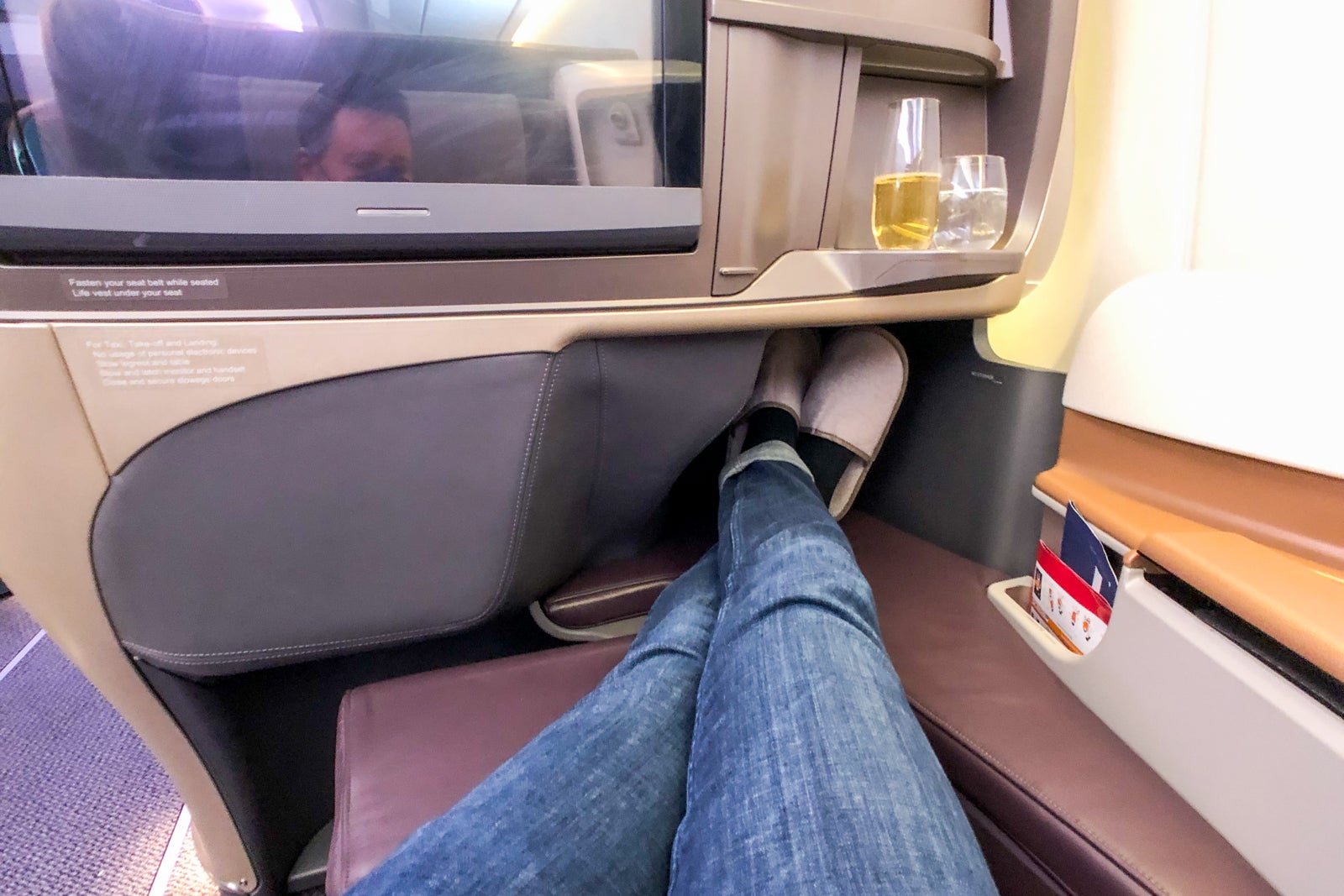
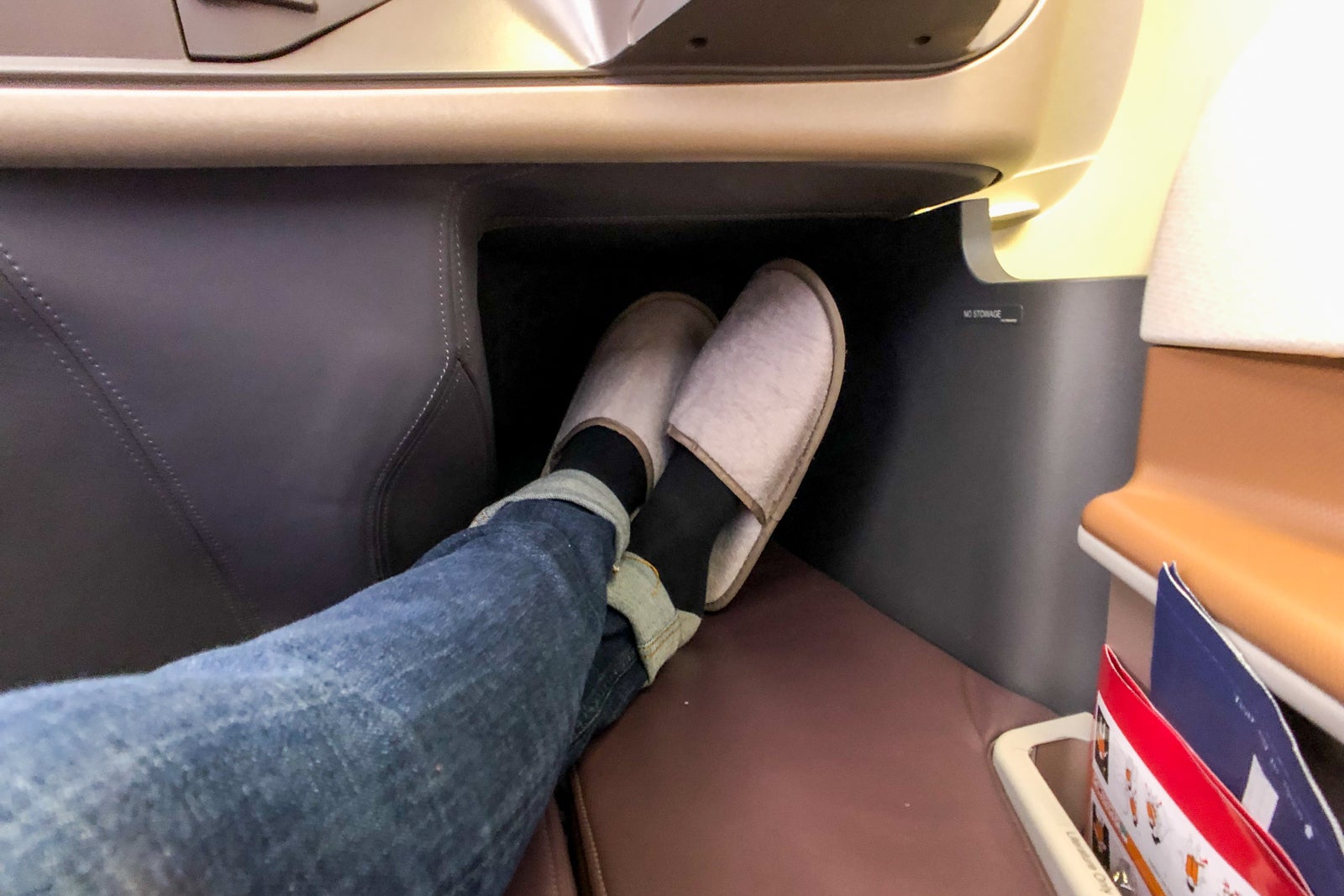
The bulkhead seats have shelf-like ottomans instead of foot cubbies, so it’s a wide, open area for your feet to go. The tradeoff is that this is also where the airline tends to seat families with babies since there are bassinet fittings here, so you could be next to a fussy infant if you sit here.
A380
As mentioned, this seat simply reclines to a flat bed and, as on the A350, flight attendants will fit it with a mattress pad, duvet and pillow when you’re ready to sleep. It measures 25 inches across and 78 inches long.
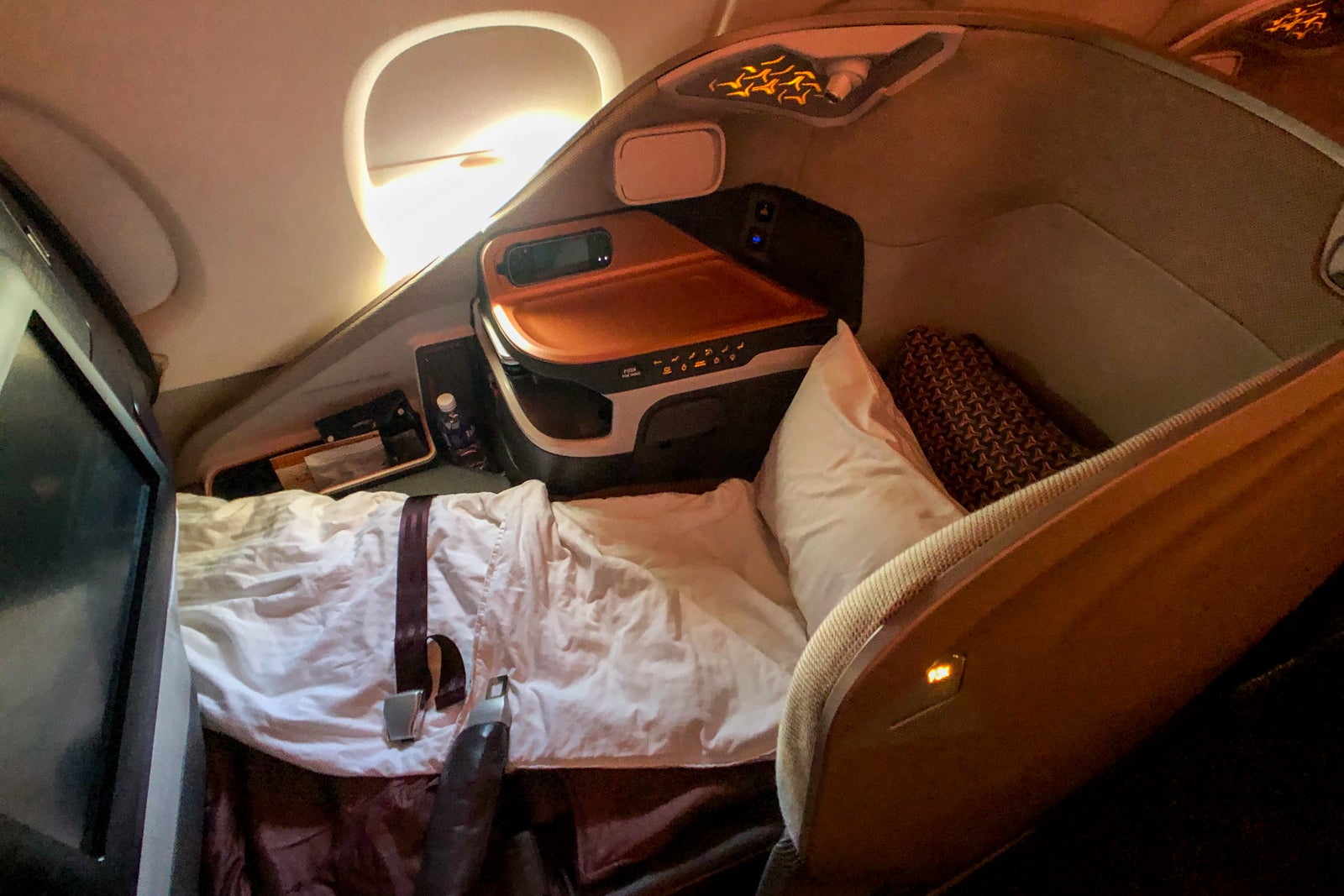
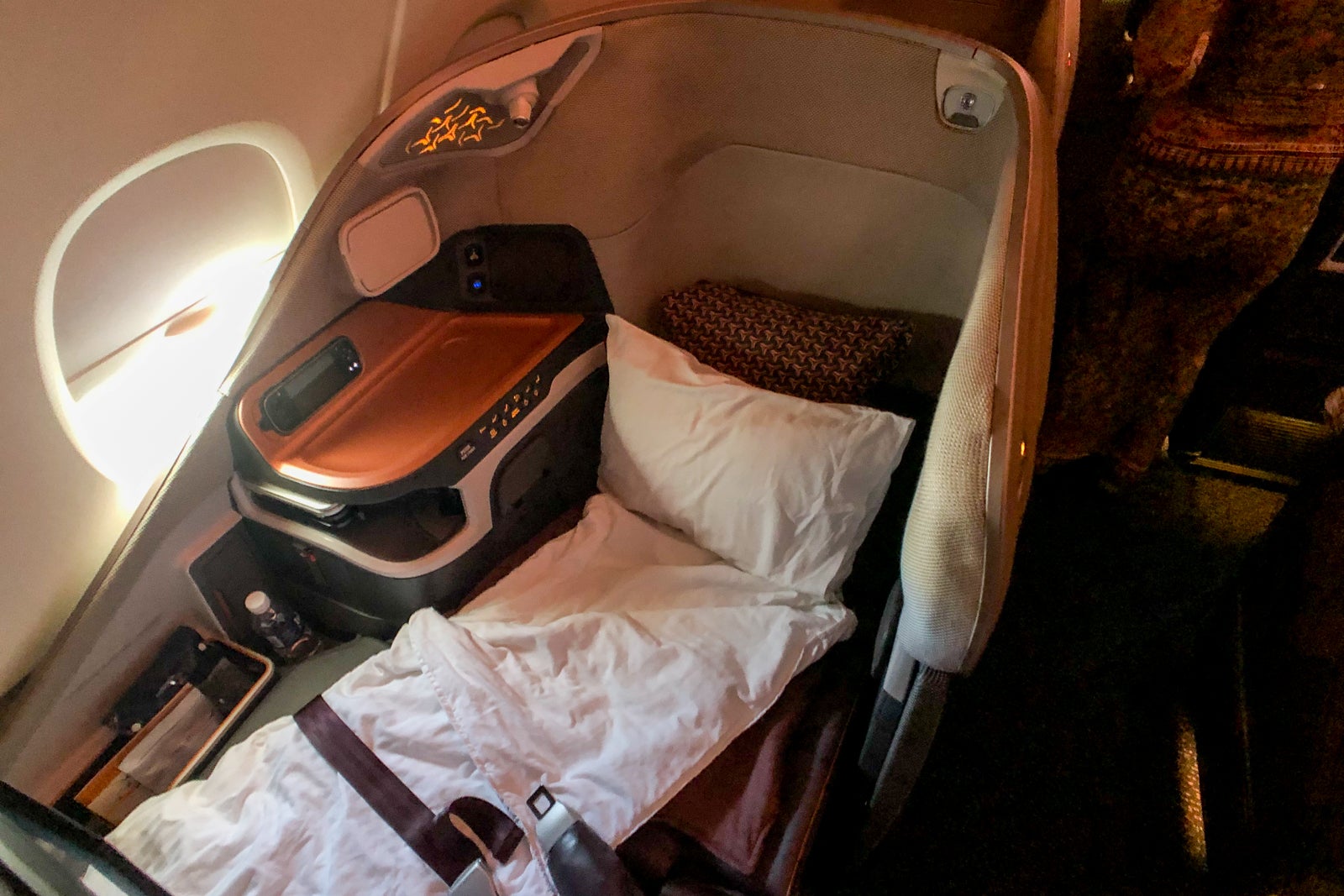
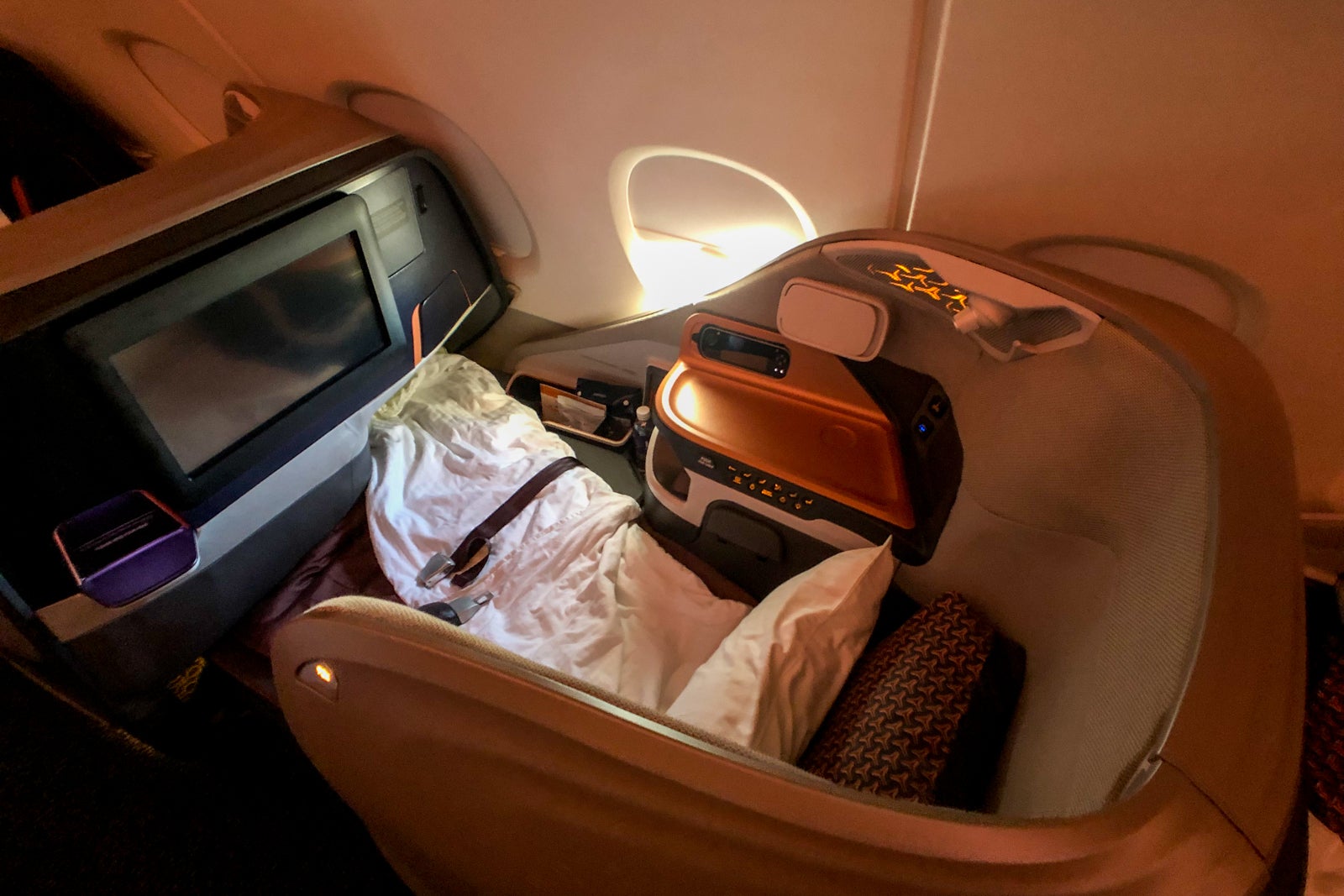
The cubby, meanwhile, is 12 inches high and 19 inches deep, but narrows to just eight inches wide at the far end, so some folks with larger feet could feel the pinch. I didn’t have a problem, personally, but I could see how taller passengers might not be as comfortable on this aircraft.
Seat features and personal storage
One of the things that makes the business-class cabins on both the A350 and A380 feel so open and airy is the fact that neither jet has overhead compartments over the middle seats, just ones above the side sections.
While the limited number of overall passengers mean that you aren’t likely to run out of space for your carry-on, it does mean that flyers along the sides of the cabin might be bothered by their center-row counterparts opening and closing the overhead bins above their seats. Aside from that, there are some other interesting modifications that make the A380 seat slightly more comfortable.
A350
The seat controls, including do-not-disturb and attendant call buttons plus a jack for headphones, are embedded into these seats’ narrow armrest.
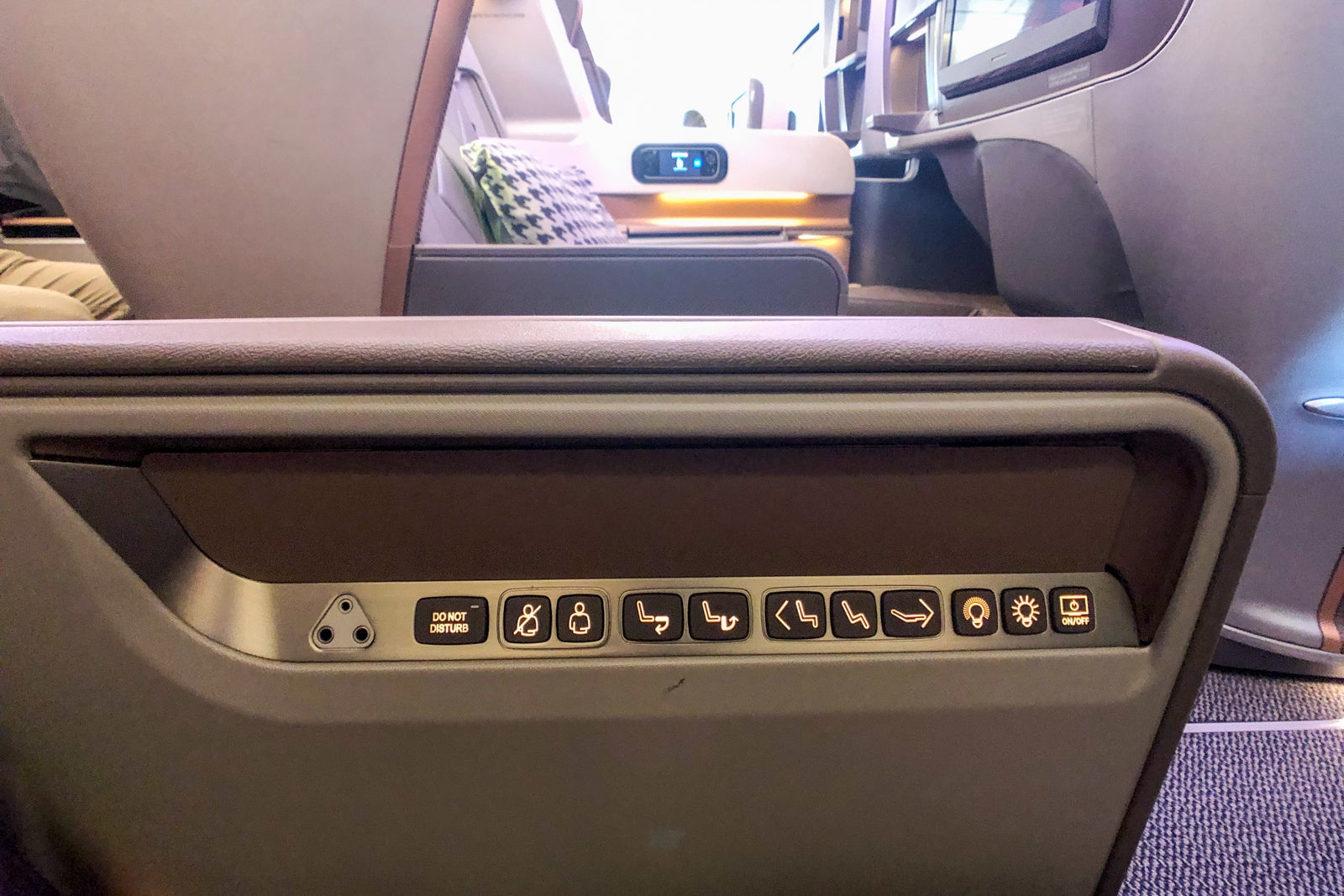
Next to the seatback are three small reading lights set to various angles to shine on the tray table or for when the seat is in bed mode.
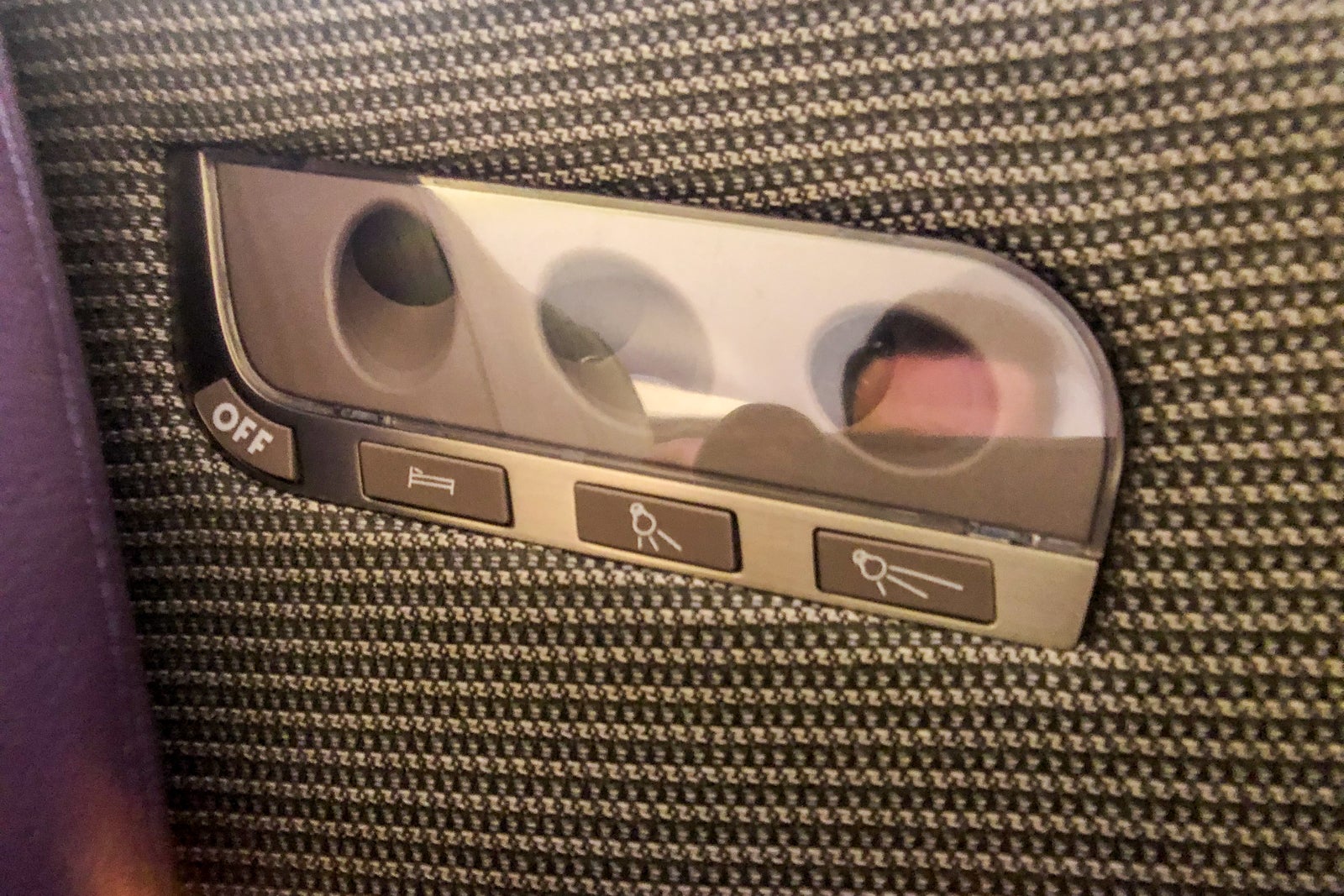
On the side with the wide armrest, there is a stowage compartment that can hold a laptop or tablet as well as other items like glasses and headphones, plus a reading light and another headphone jack.
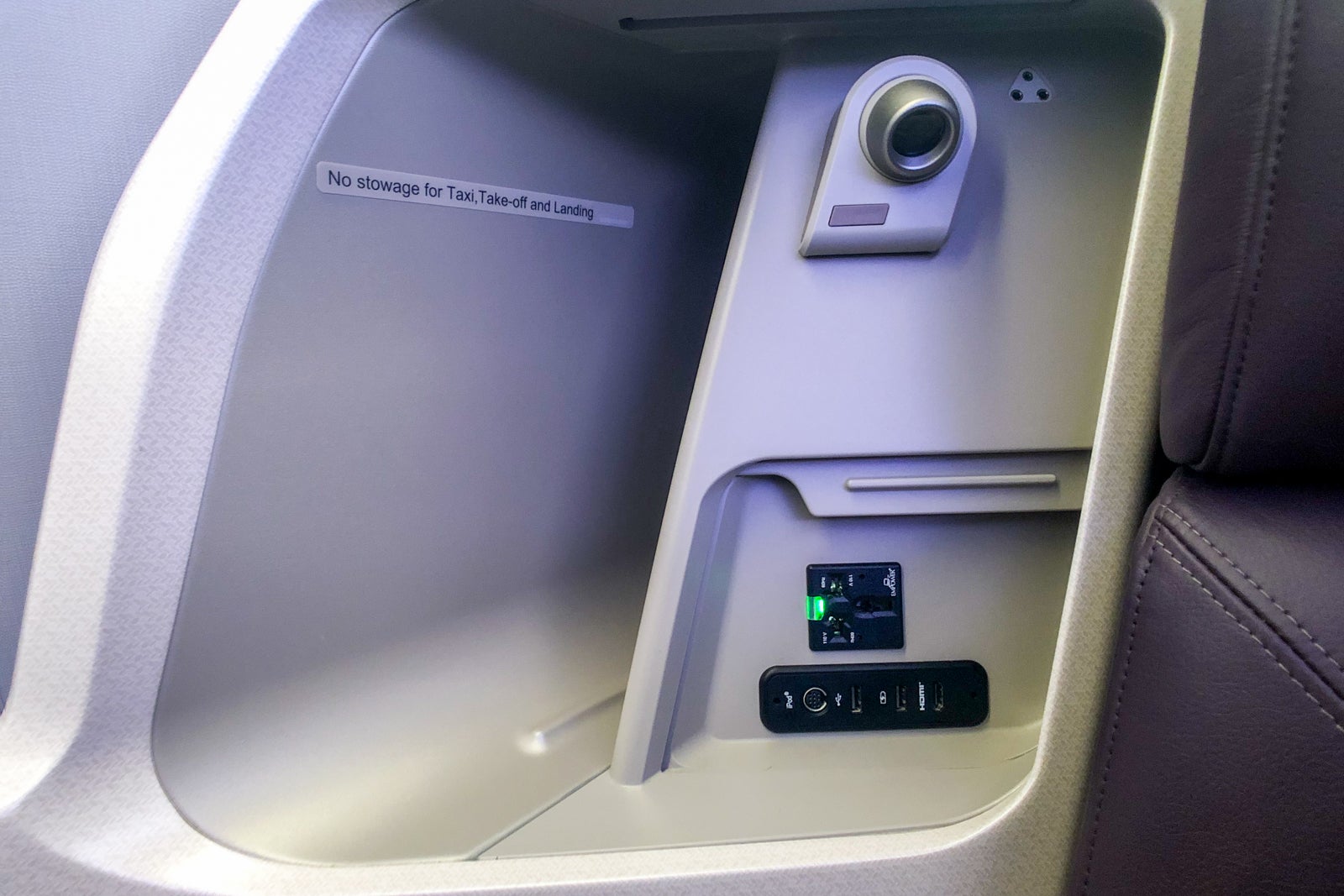
Below those are a universal power plug, an iPod connector, two USB ports and an HDMI port – their proximity to the stowage compartment makes it easy to keep electronics charged and to bundle the cords away.
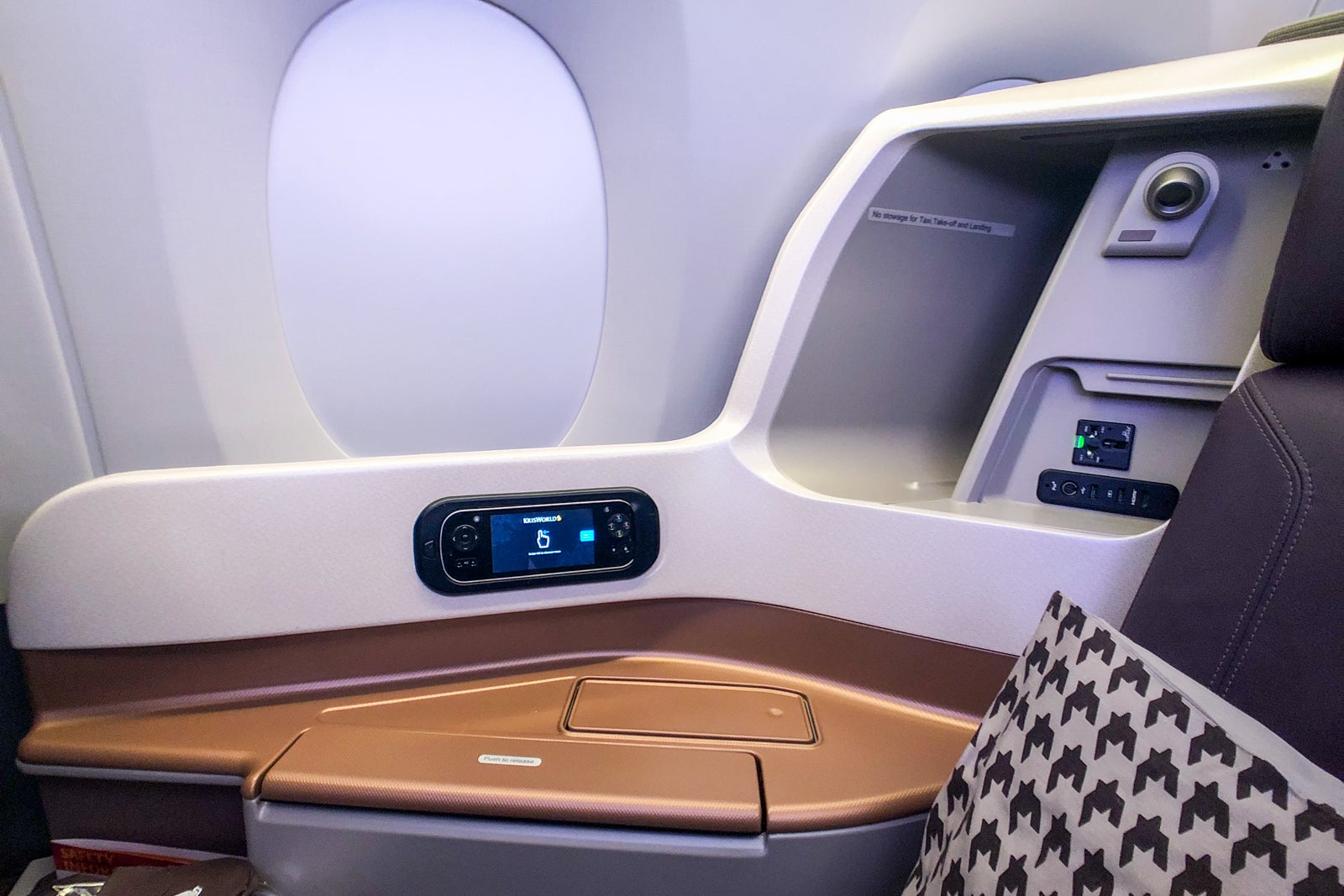
There is another stowage compartment in the wide armrest where you’ll find airline-provided headphones and a bottle of water. I found it useful for holding a bag with my toiletries during the flight.
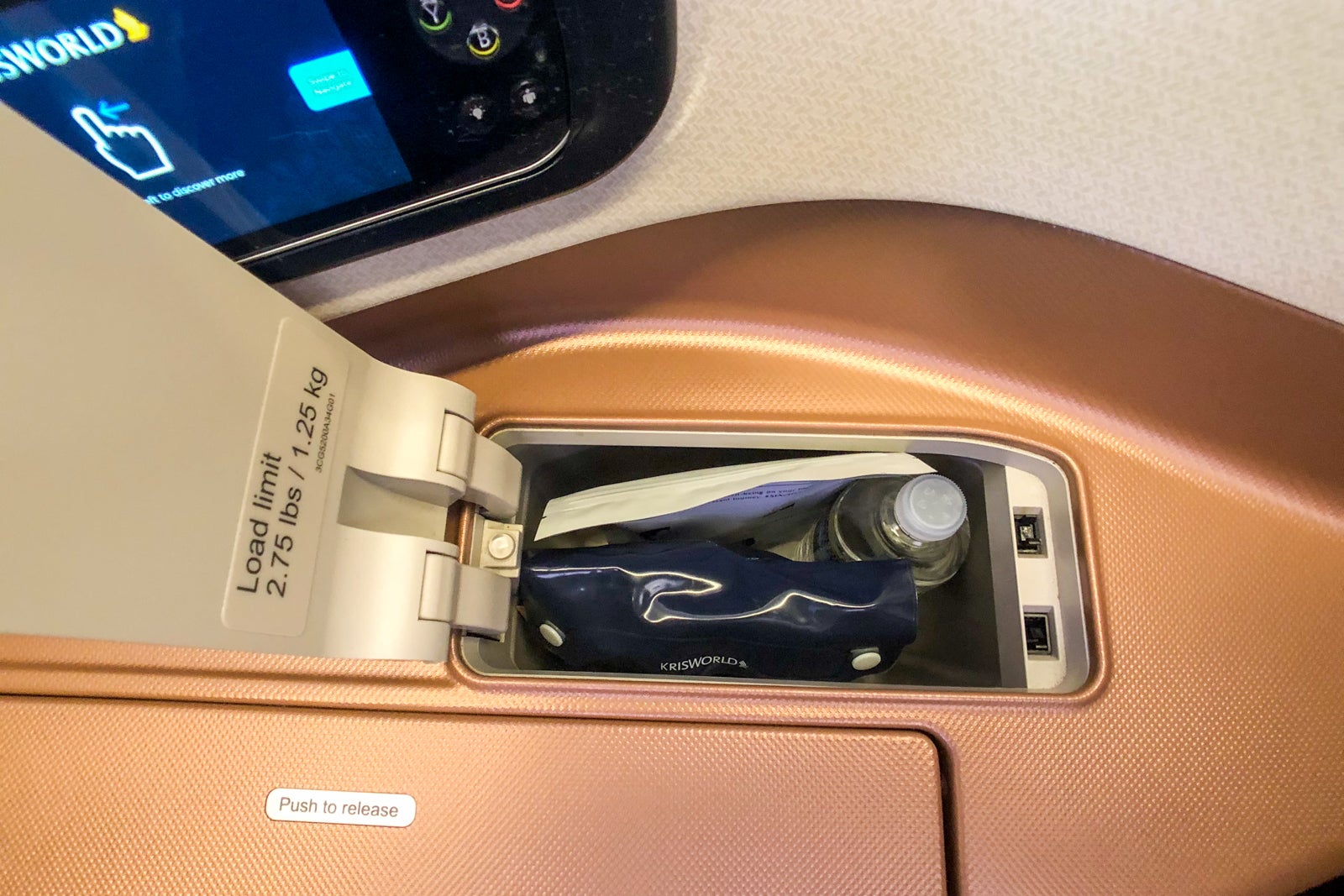
In addition to the entertainment system, the front of the seat holds a small, enclosed compartment that’s good for keeping loose items like a phone or wallet and under that is a little shelf for holding pre- and post-departure drinks. Just next to that is a panel that slides up to reveal a mirror – for pre-landing primping, of course – and then on the opposite side of the screen is a hook for hanging your coat.
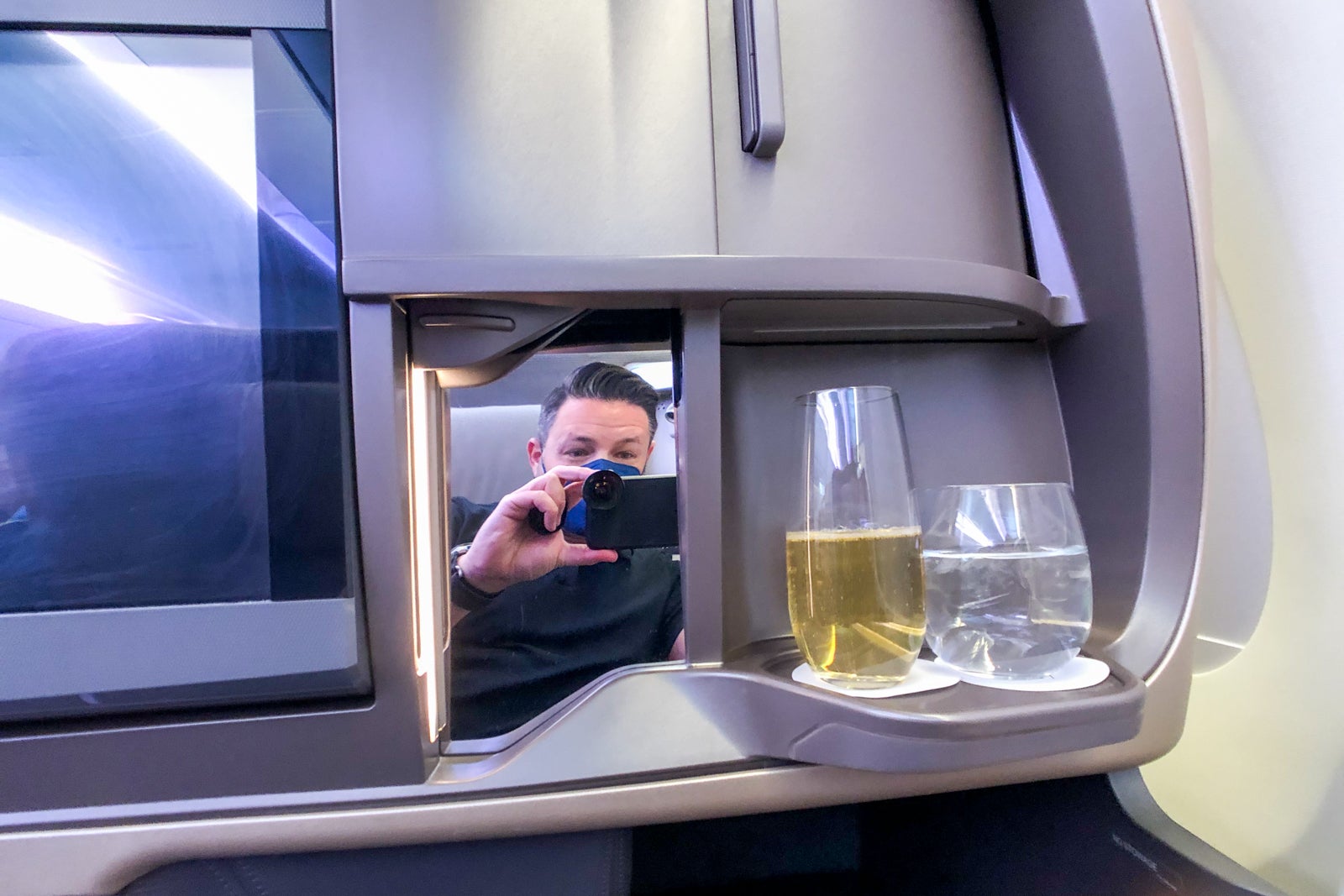
Finally, there is a small area under the entertainment screen on the ground where you can keep your shoes or the slippers provided by the airline.
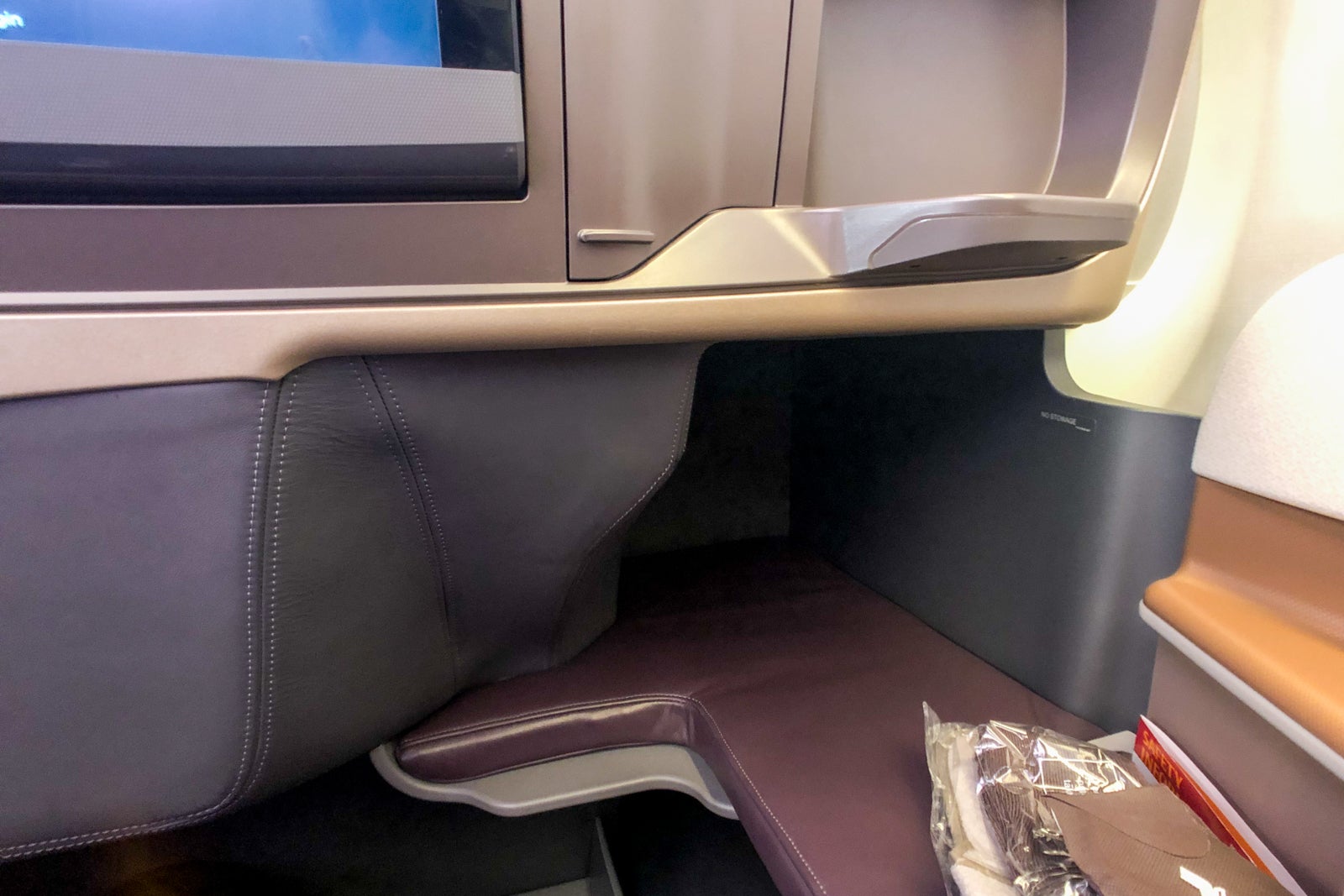
While there aren’t tons of secret compartments or pockets to stow things in, I found the ones incorporated into this seat held everything I needed easy access to over the course of the flight.
A380
In terms of stowage and configuration, the A380 seats feel like a totally different product. There was enough space beneath the footwell to hold a small carry-on item like my backpack, which meant I didn’t have to get up and open the overhead bins every time I wanted something. As mentioned, they only have a flip-out shelf instead of a narrow armrest (and another one on the other side at a lower level than the wide armrest), which is a pretty ingenious way to save space while still providing comfort.
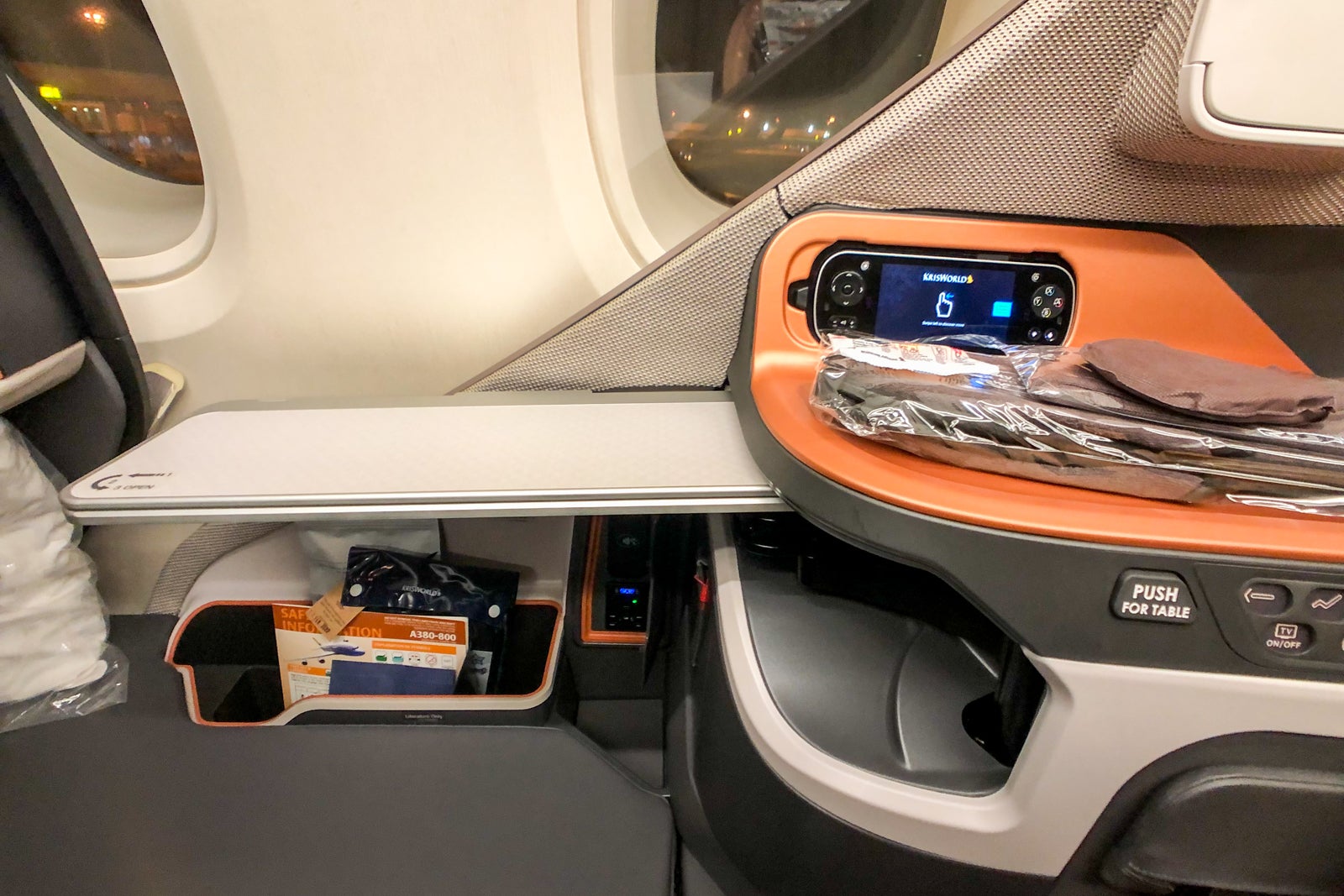
The wide armrest has a reading light above it, and a surface area that was large enough to hold my laptop, so I could leave it there between takeoff and landing while it charged. There’s also a small space below that and the tray table where you can put a book or another small item, but I didn’t put anything there for fear of knocking it off. Above the armrest is a lighted mirror whose cover flipped out.
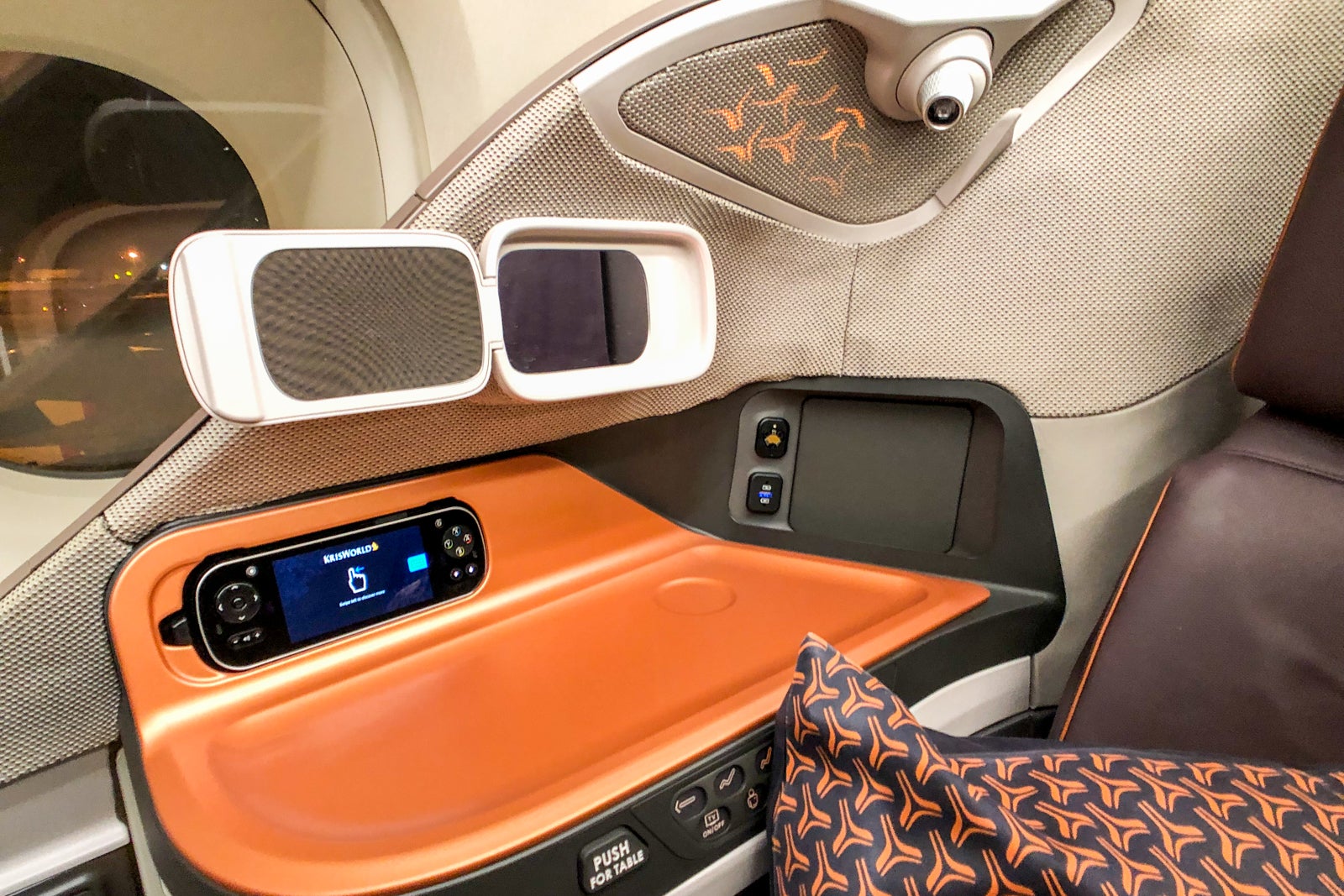
Below that and toward the back of the seat is a USB port and a jack for headphones.
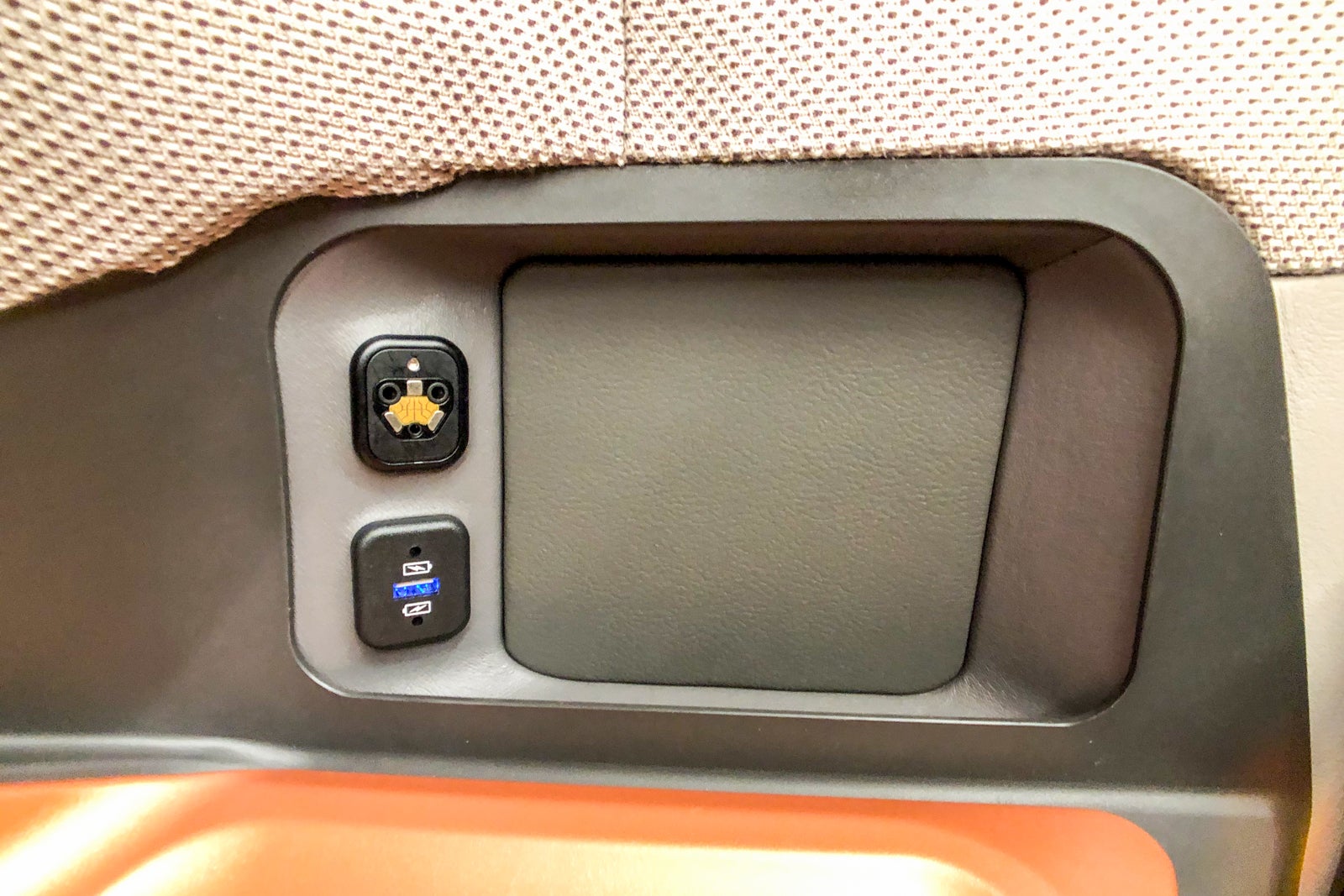
Embedded in the armrest, the seat controls have various preset positions as well as buttons for controlling individual parts of the seat, illuminating a do-not-disturb indicator and turning the seat’s lights off and on.
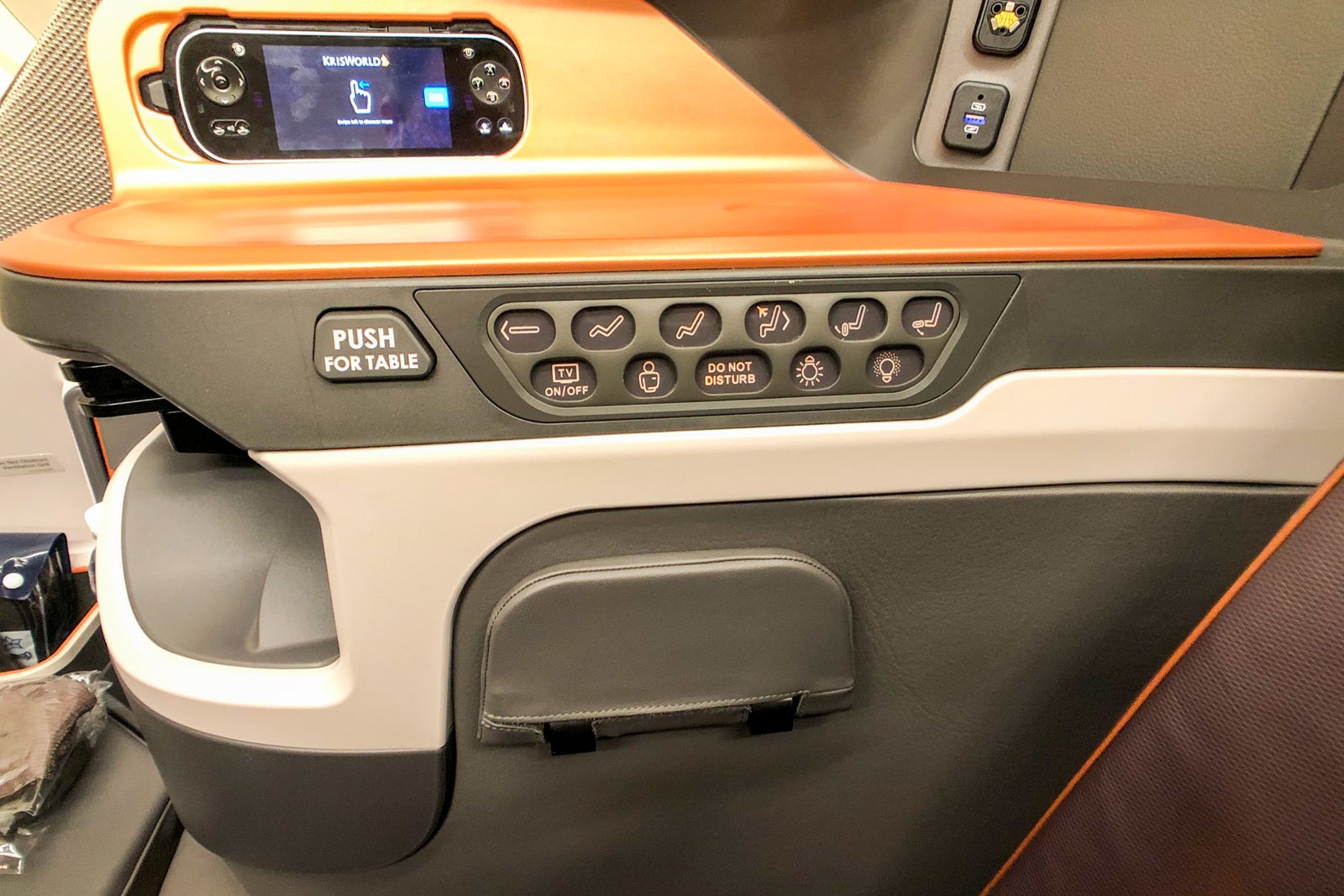
Toward the front of the armrest is a pocket holding the safety information, headphones and a water bottle. Just next to this is a card reader that might eventually be used for in-flight purchases, as well as another USB port and a universal power plug.
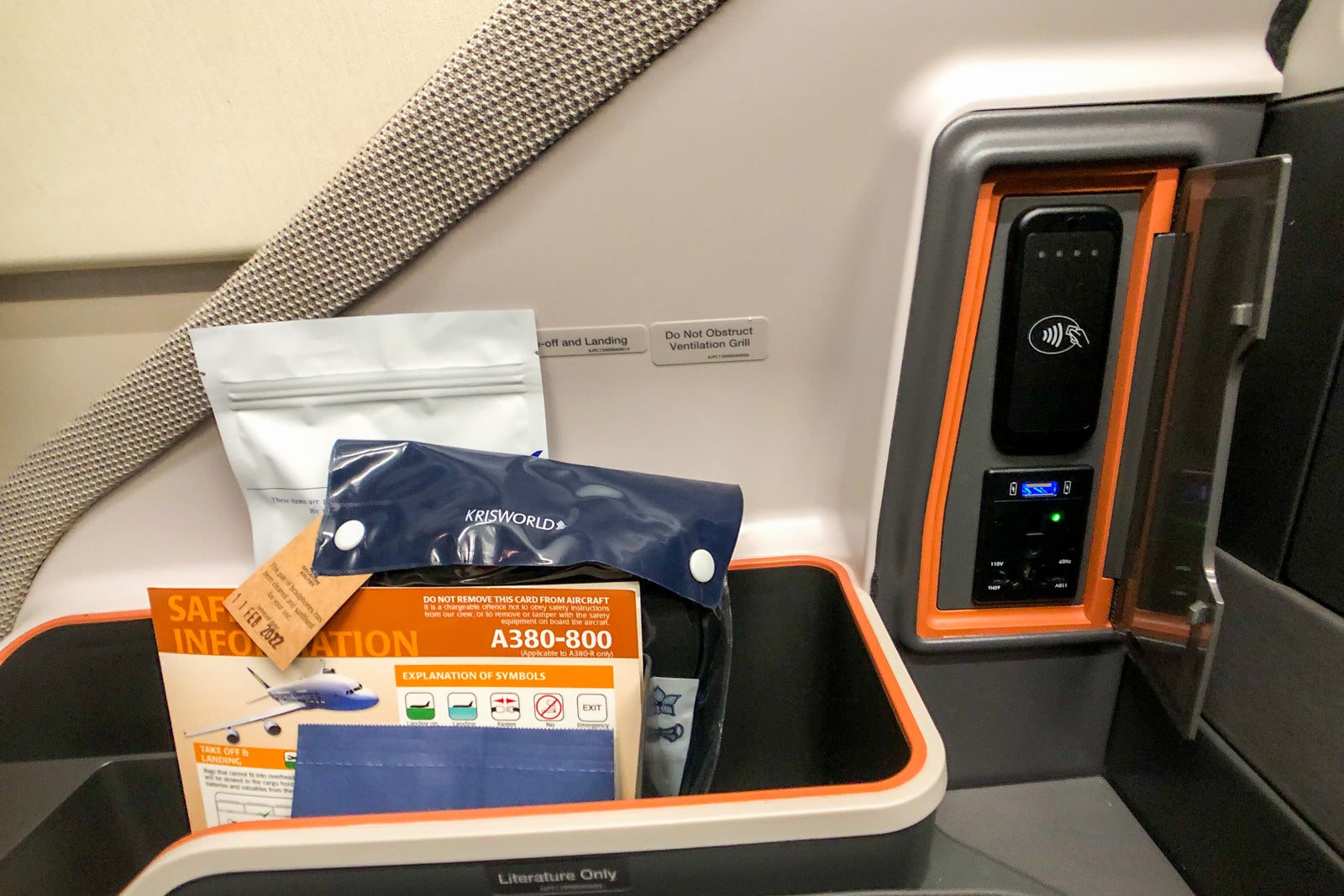
On the front of the seat, there is a small foldout tray for beverages on the aisle side and a little compartment with a closing cover to hold small loose items, plus a hook for hanging a coat or sweater.
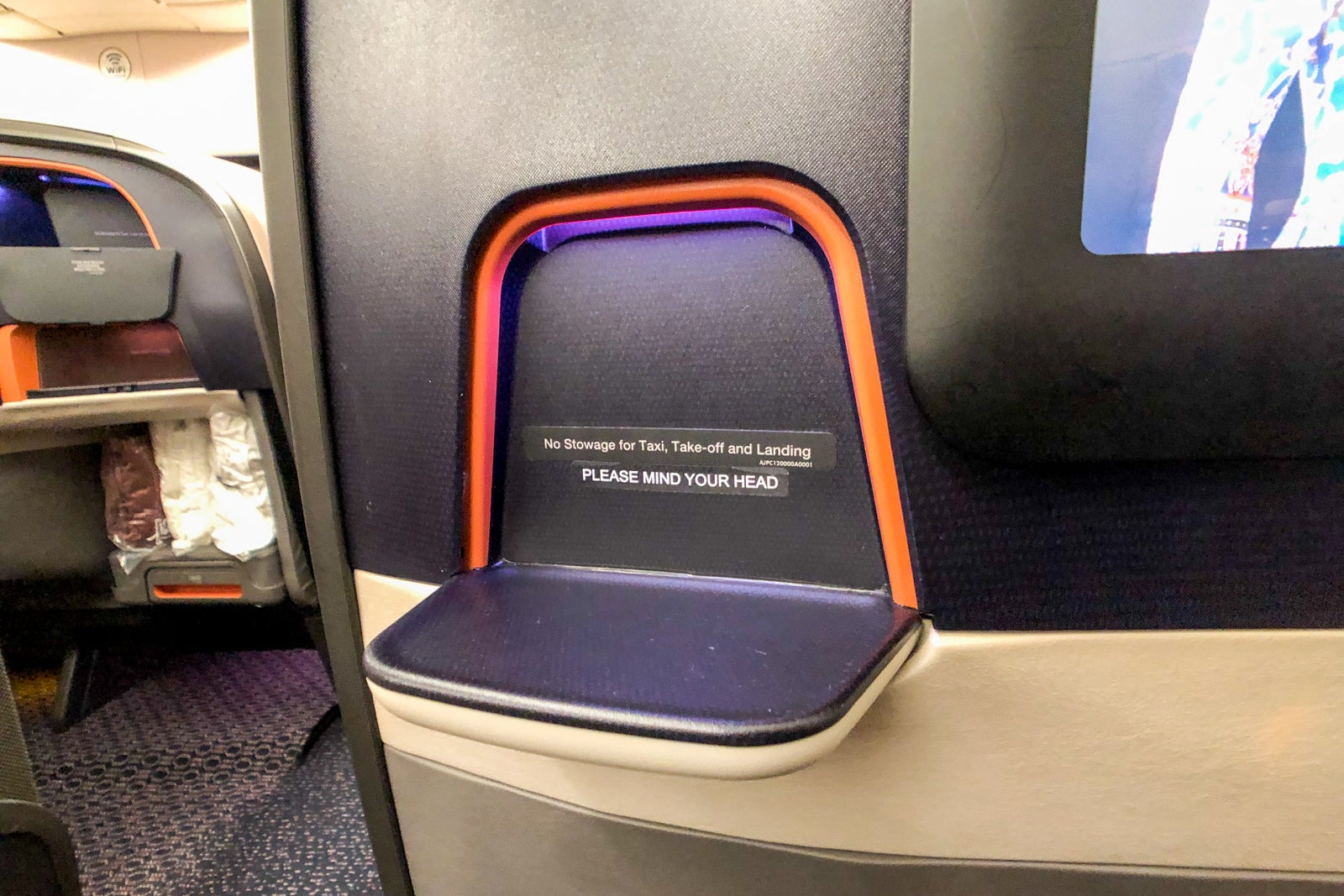
Connectivity and entertainment
Both planes feature the same entertainment systems including over 1,000 movies, television shows, music entries and other options. They also both offer in-flight Wi-Fi.
There is, however, one main difference that some travelers might care about and others might not.
A350
The entertainment screens in business class aboard the A350 are 18 inches across diagonally. Passengers can control them using a touchscreen remote that is docked in the wall of the pod just above the wider armrest. You can unlock it and pull it out then use the retractable attachment cord to lock it back into place.
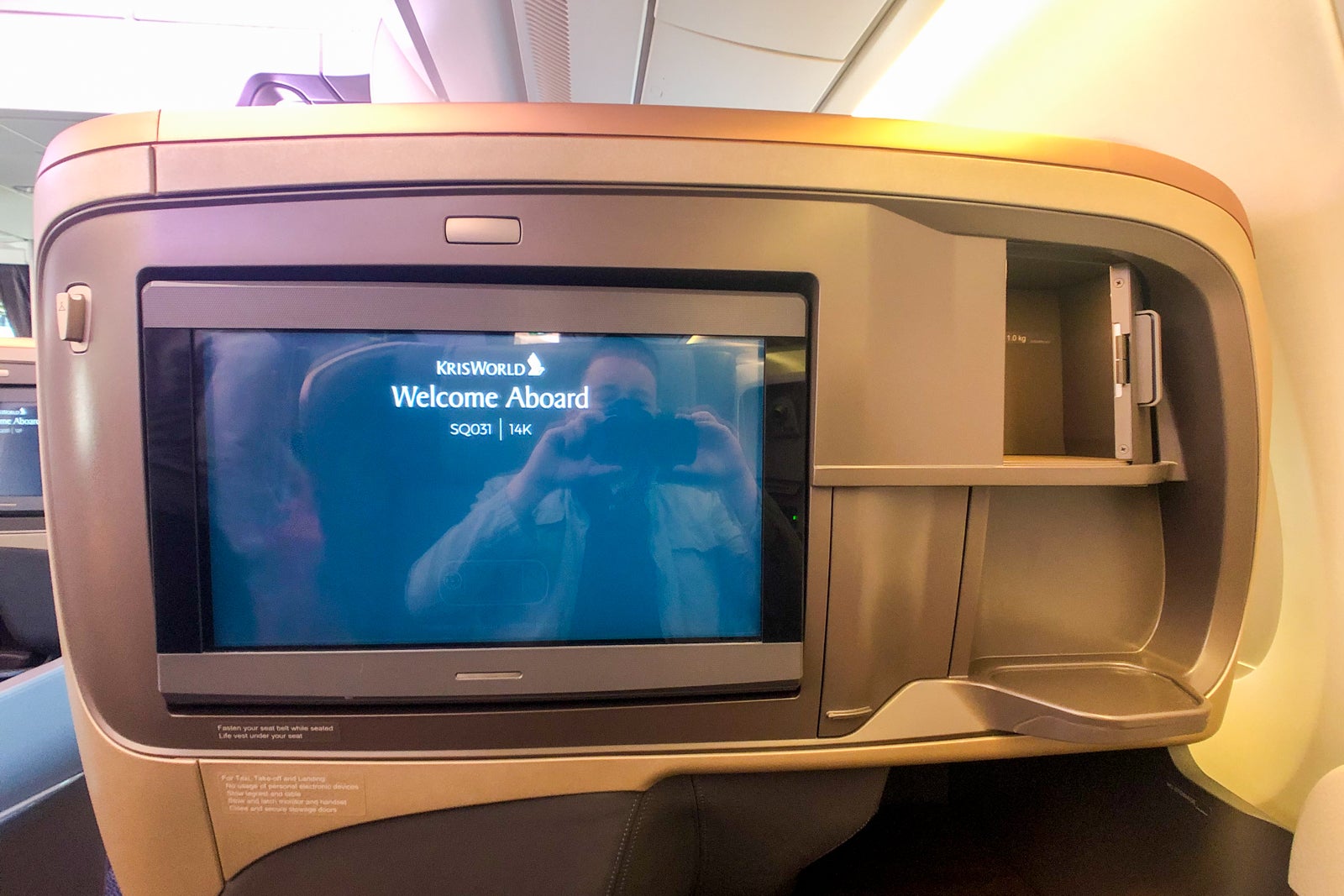
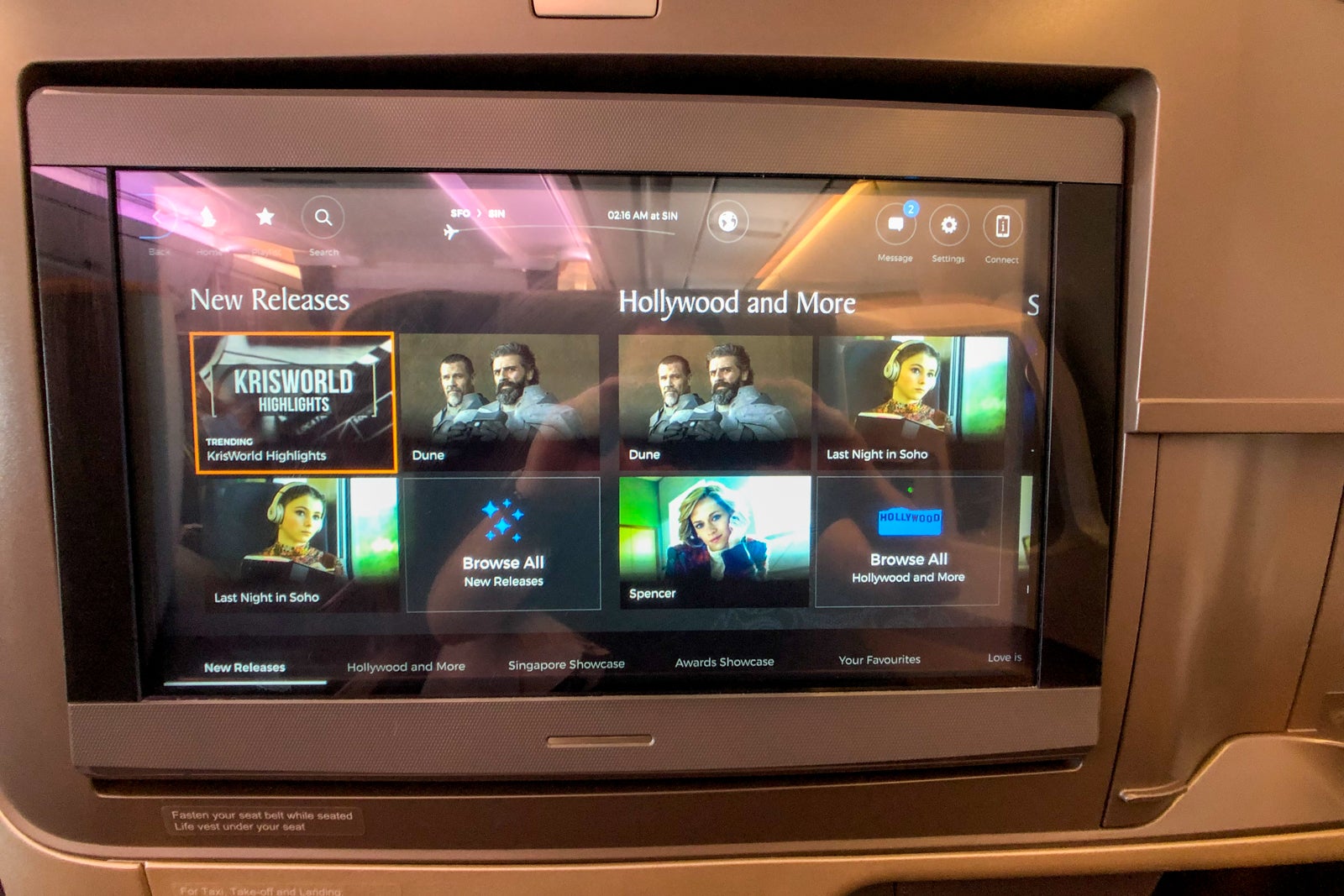
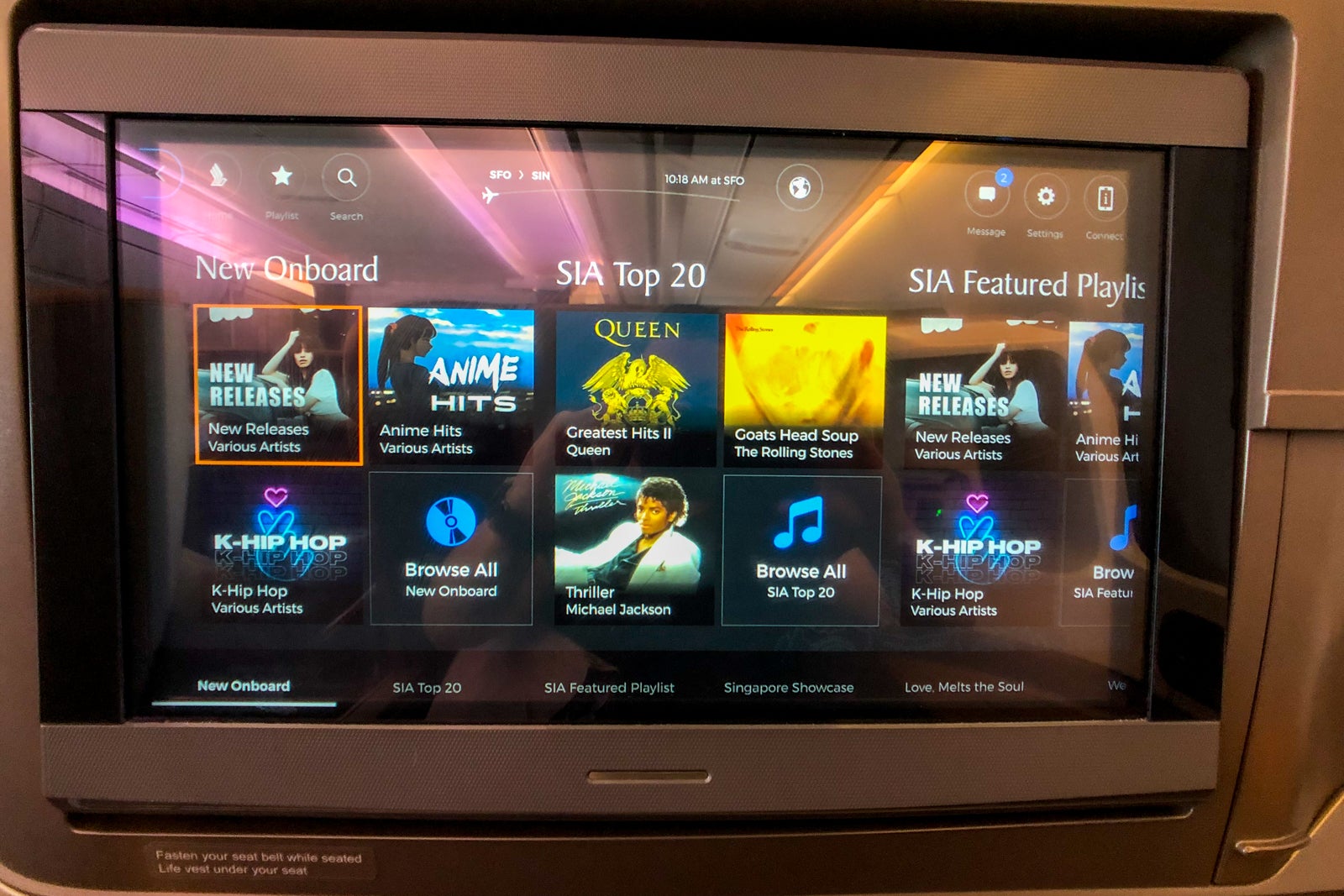
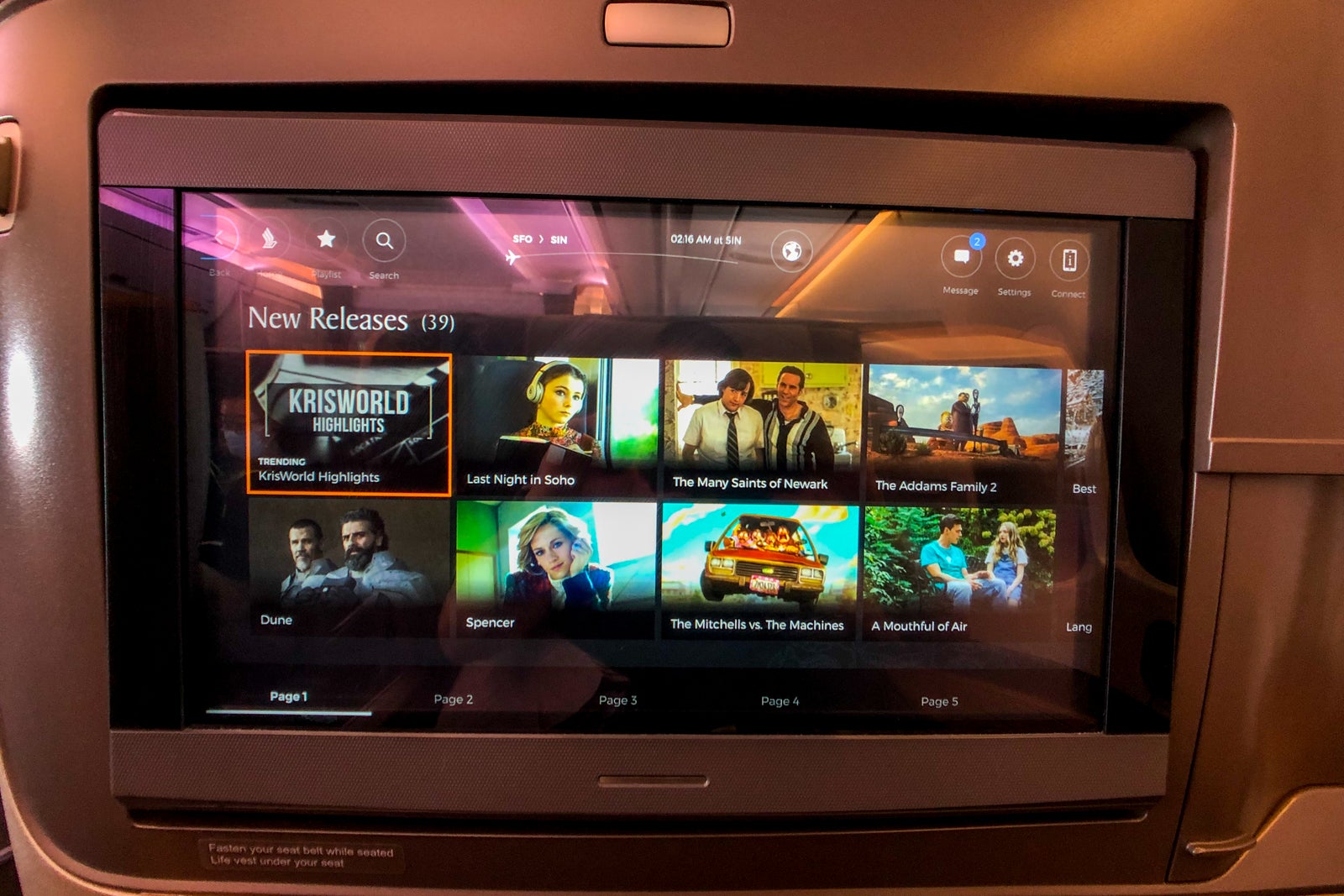
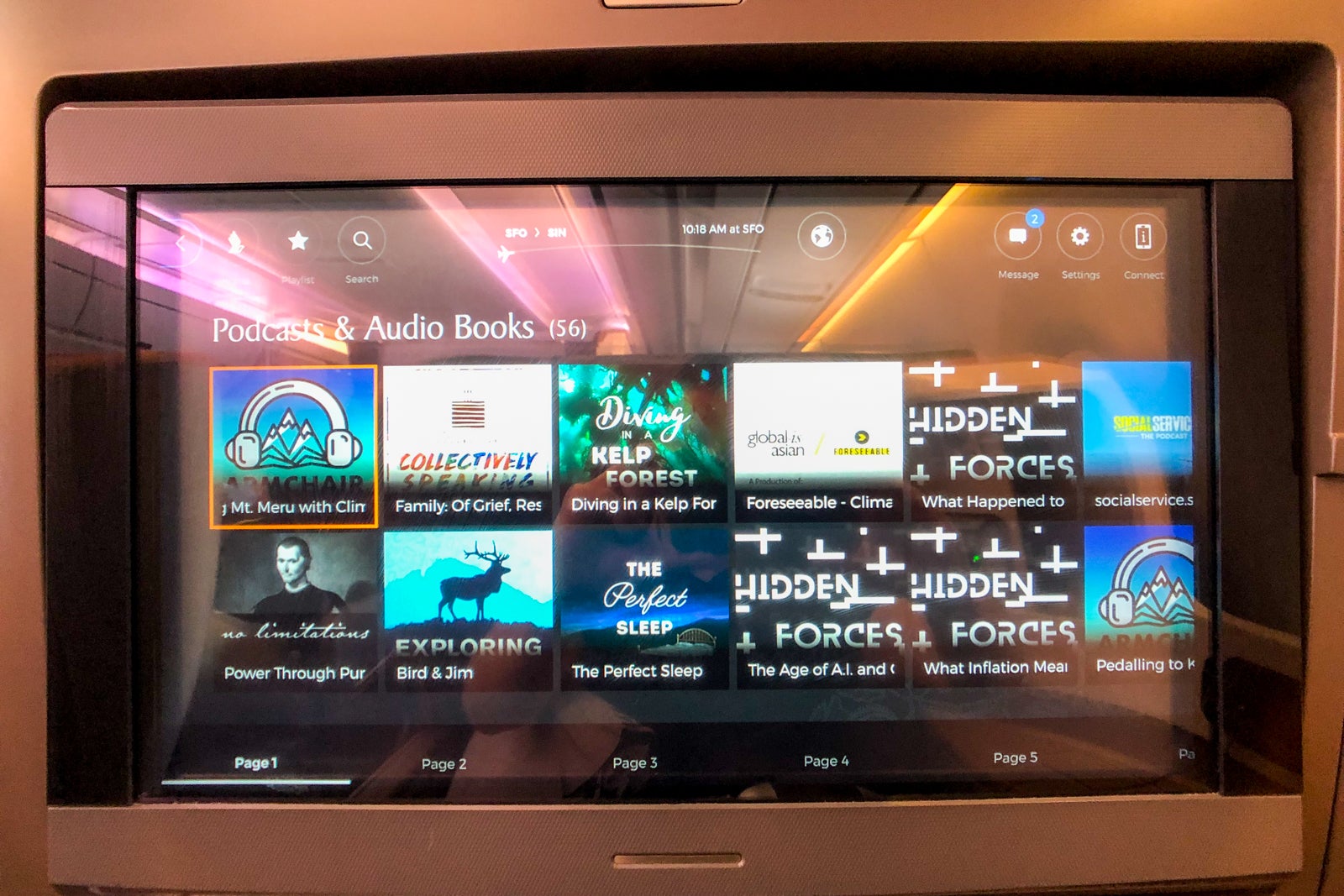
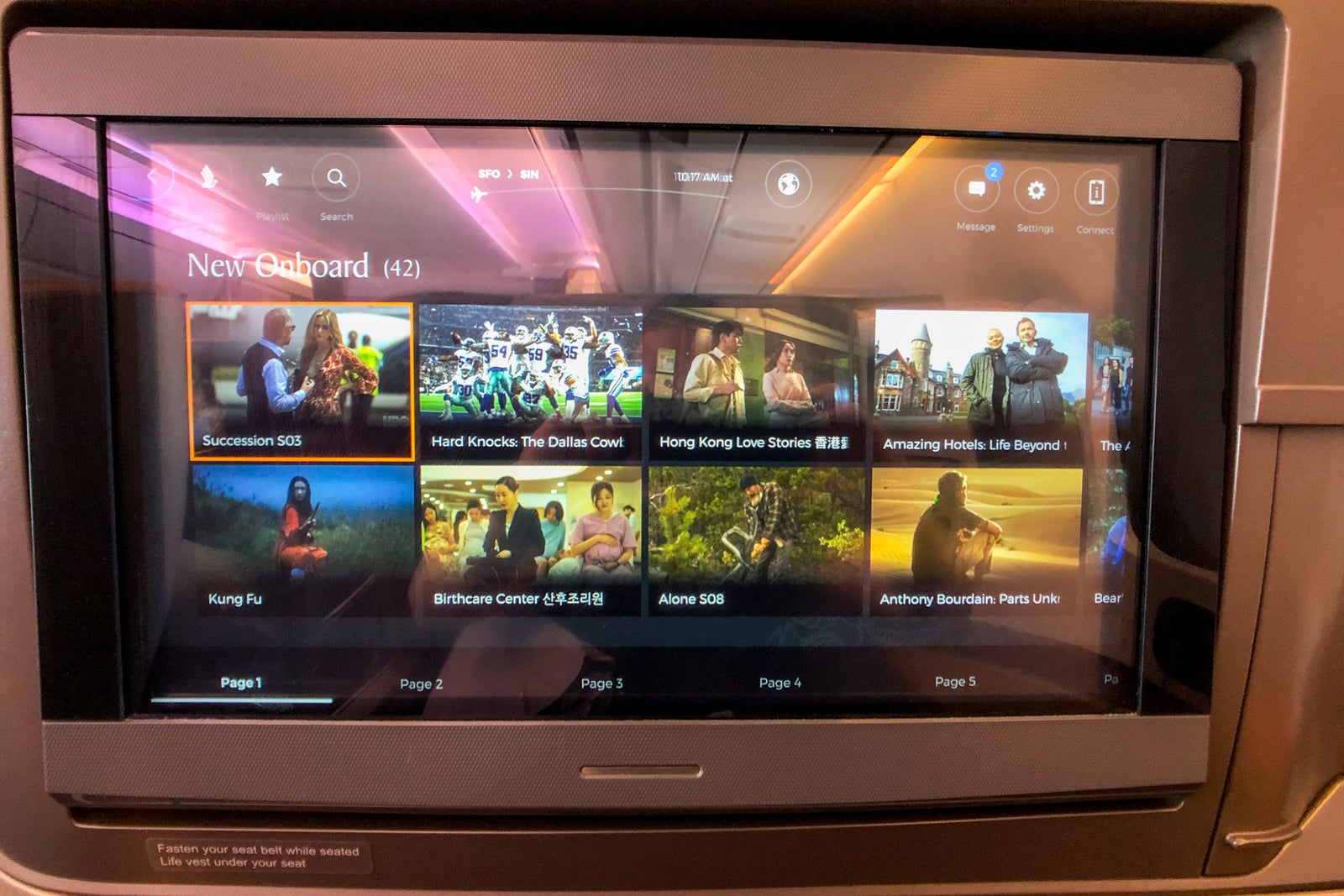
One major downside of the system is that the main screen is behind a plastic frame and does not tilt very far, so watching a movie from the lie-flat position is not optimal given the angle and the glare off the screen.
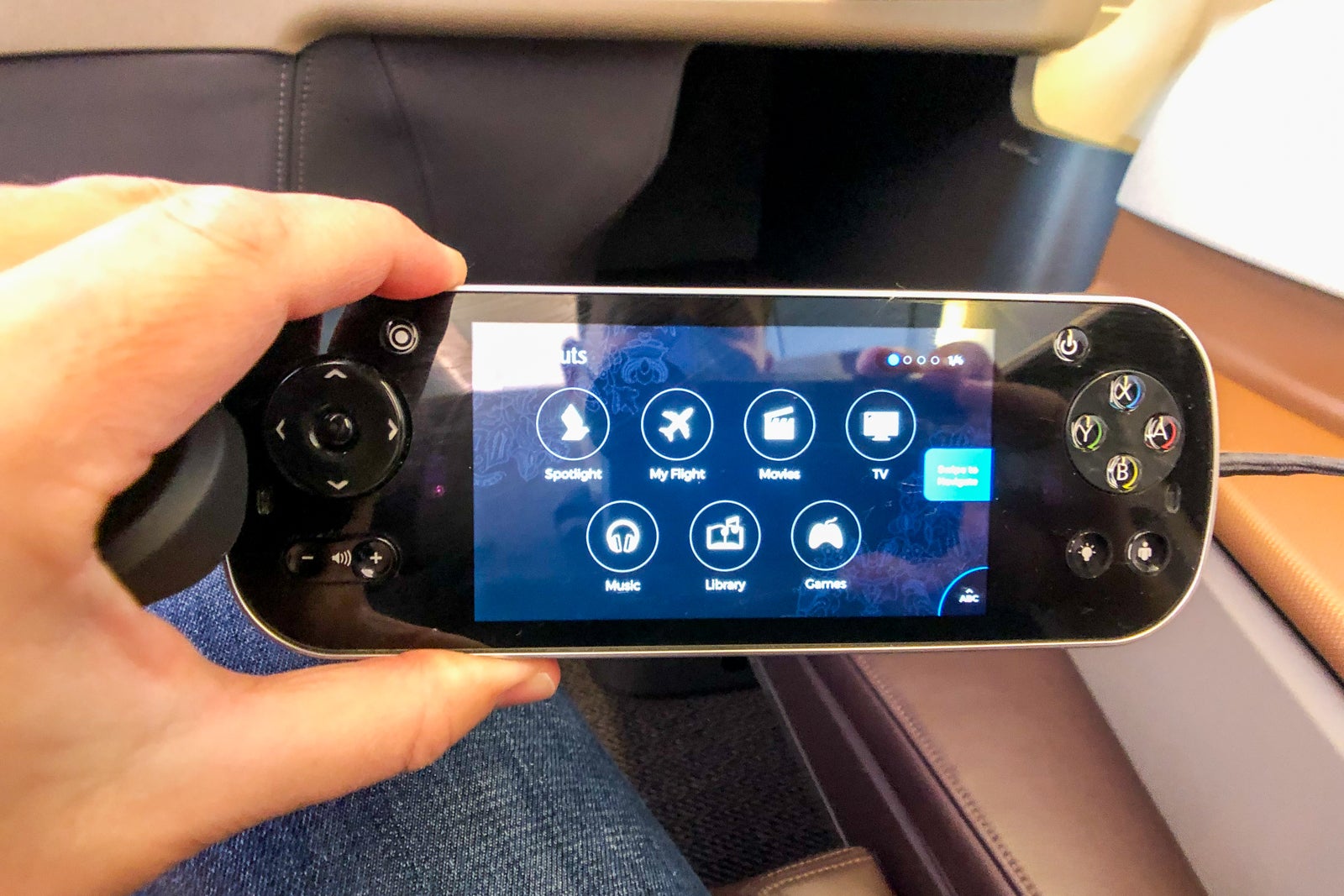
The A350 offers Wi-Fi and, as a business-class passenger, I was able to enjoy 100 MB for free, which got me through a bunch of emails and texts. Then the plans run from $3.99 for two hours of text to $9.99 for 100 MB of browsing, $15.99 for up to 200 MB and $15.99 for three hours of surfing (that cannot be paused). Although I only used it sporadically, the Wi-Fi worked quickly and well whenever I logged on.
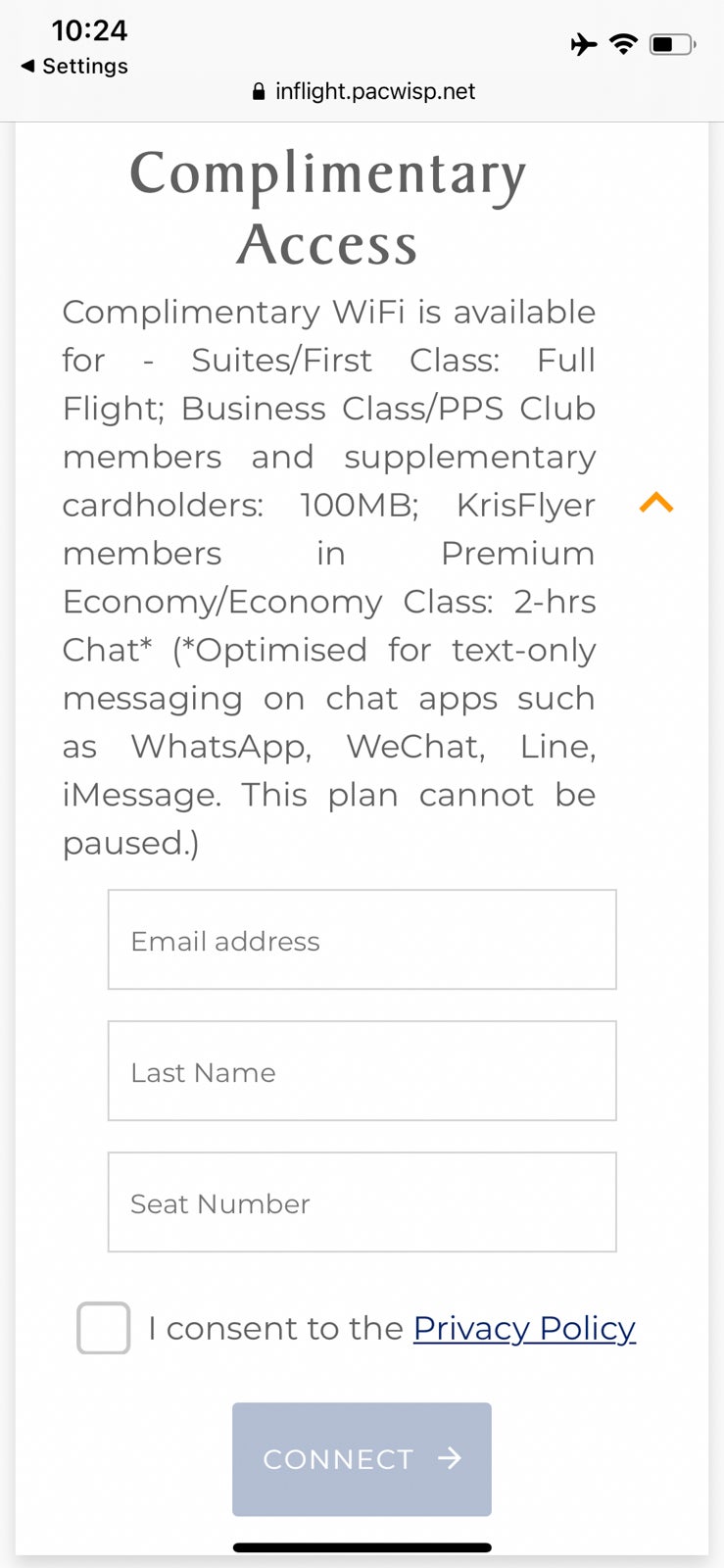
A380
Business-class seats on the A380 also sport 18-inch HD screens, though these are touchscreens, so you can control them directly, which I prefer, or via a handheld remote that docks in the large side panel and is attached to a retractable cord.
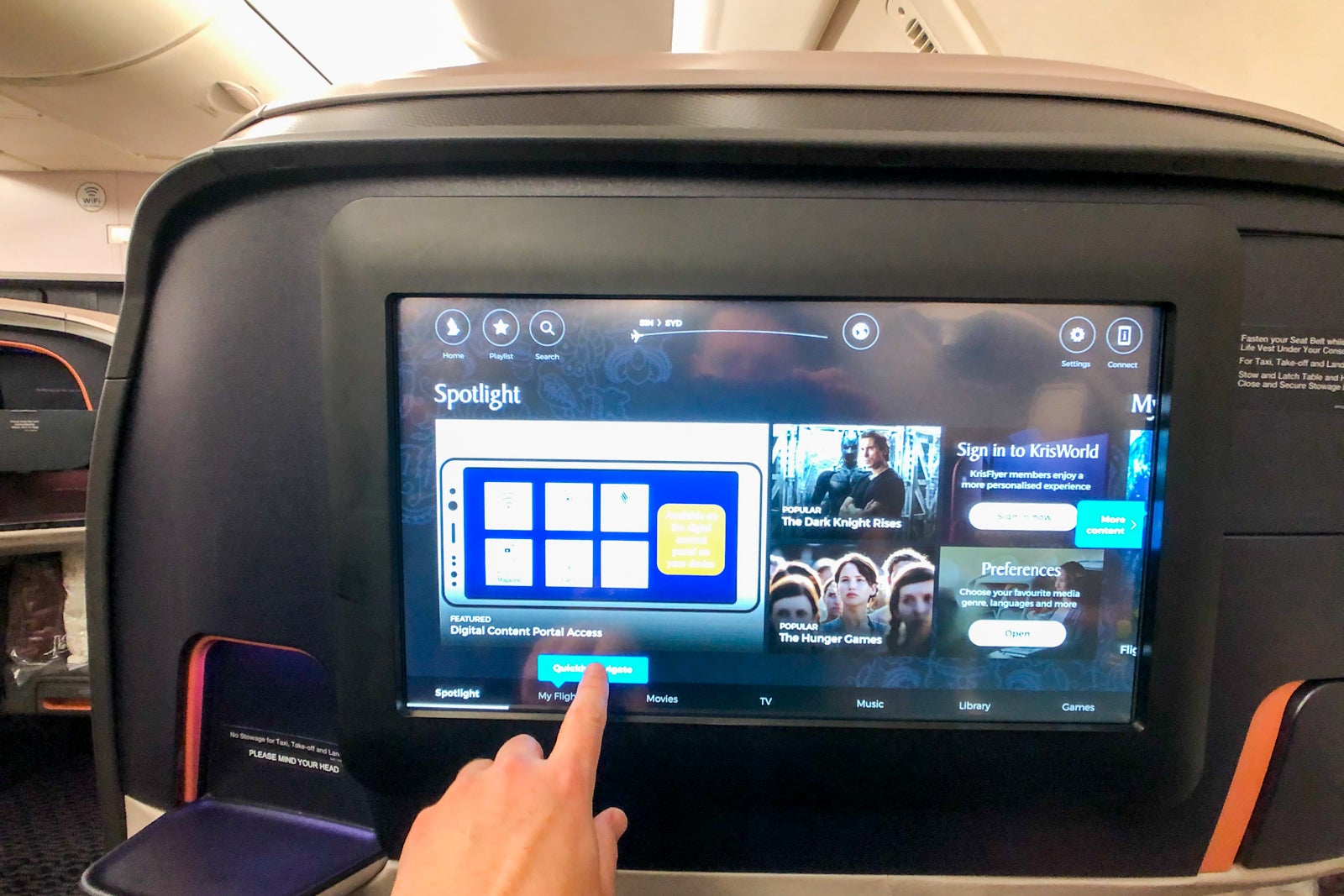
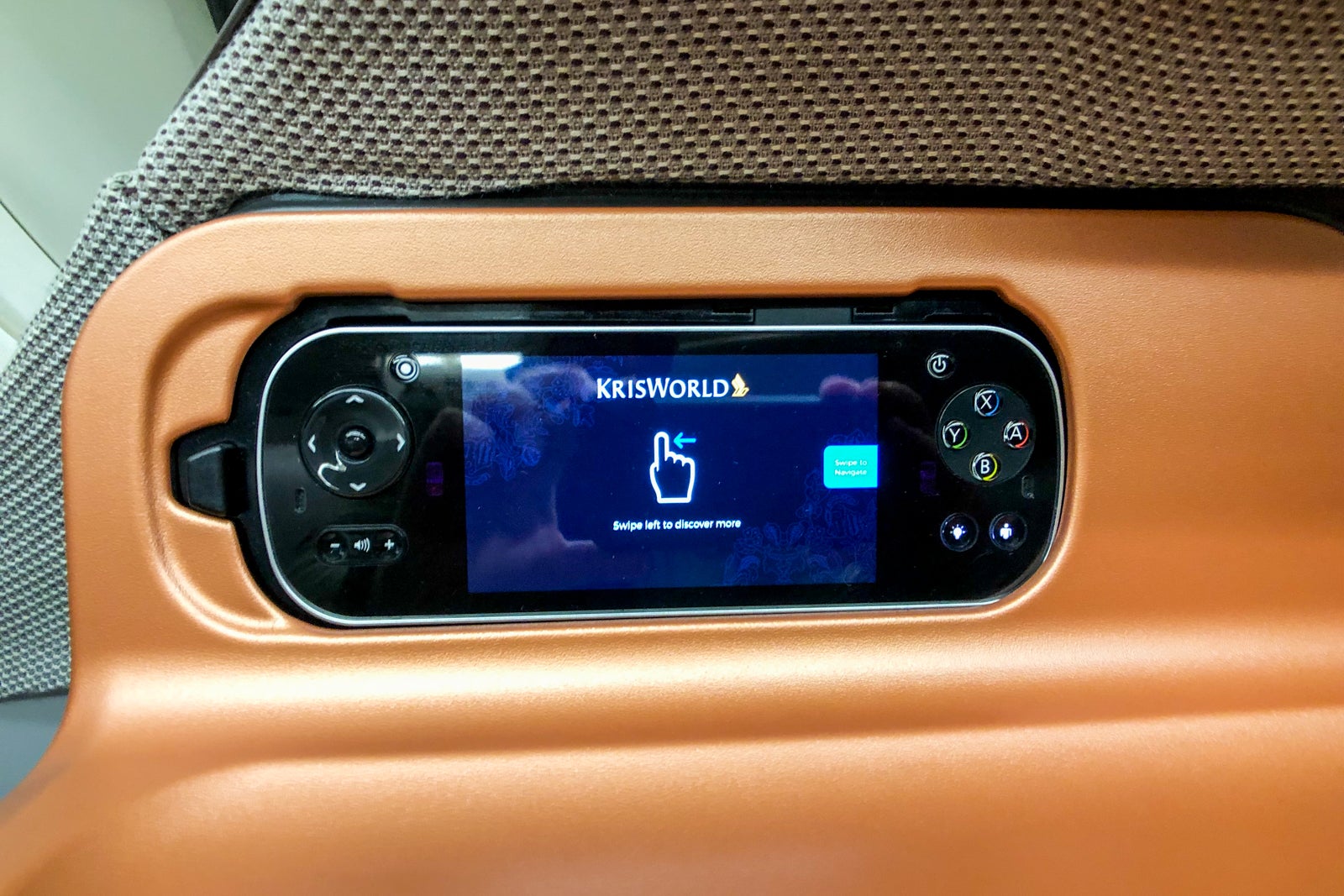
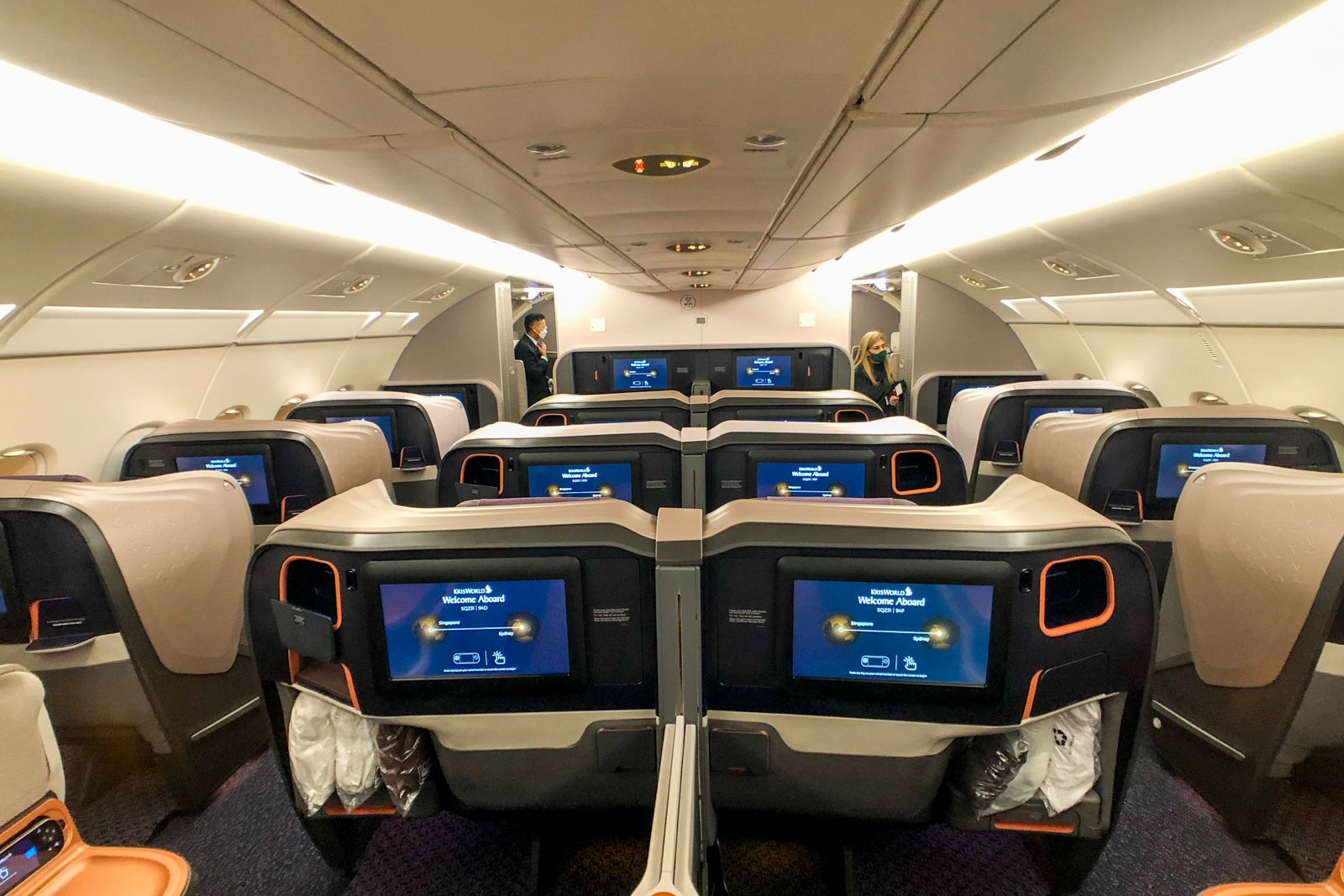
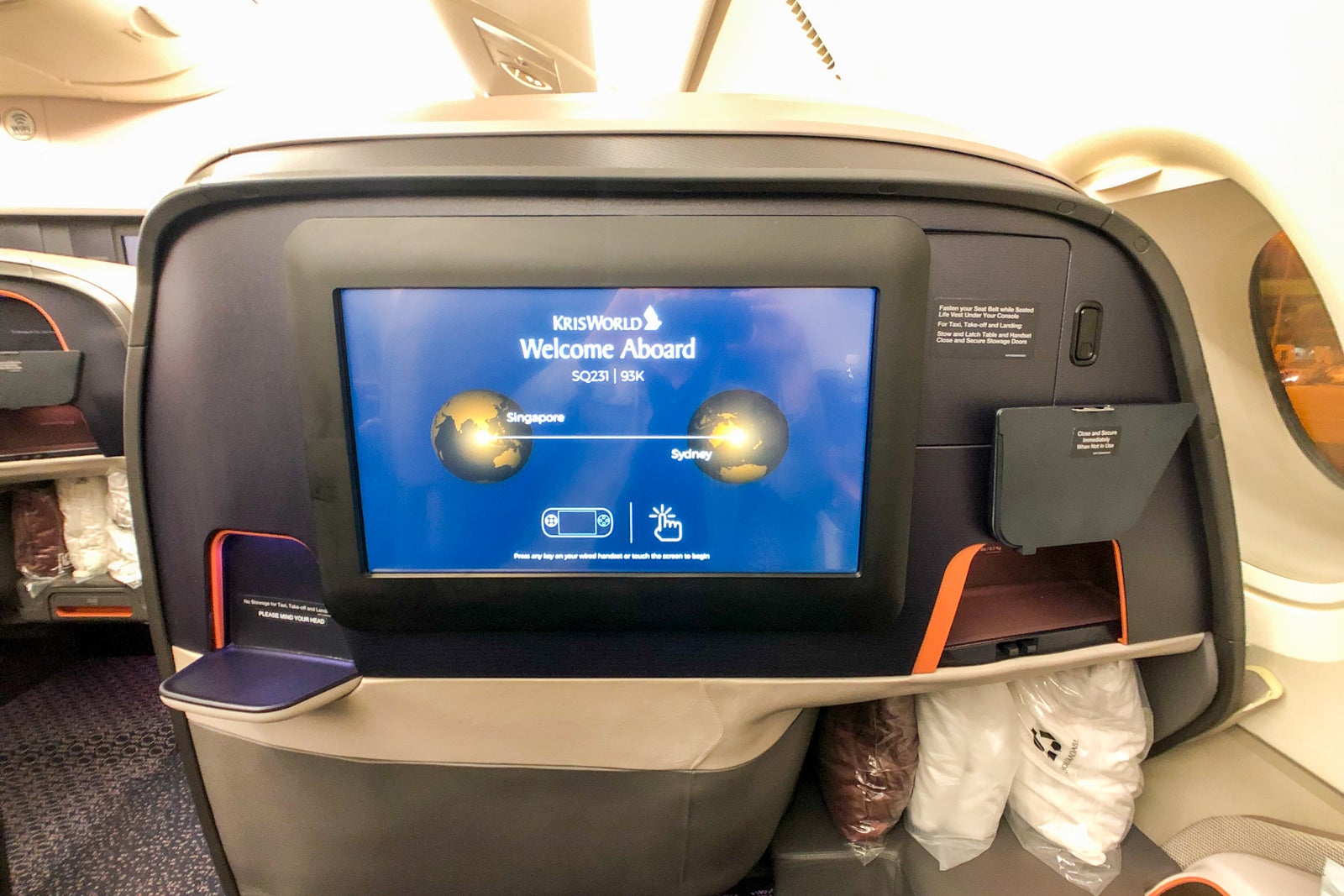
While the A380 also usually offers Wi-Fi at the same prices and data or time allowances as on the A350, the system was down on my flight, so I didn’t have a chance to test it out.

Which plane has better seats – the A350 or A350?
This is probably a toss-up, depending on whom you ask.
On the one hand, the A350 seats are wider than those aboard the A380 and some flyers prefer the flip-over bed format since it means more surface area to sleep. Personally, I liked the more muted palette and finishes on the A350.
However, I still thought the purple-orange combo on the A380 was quite sharp and the seats themselves feel like an evolution from the older A350 ones thanks to their race car-like look. Although they are narrower and have bulkier shells, I also preferred their maneuverability into various seated lounging positions and the fact that you could just recline them to fully flat rather than having to enlist the help of a flight attendant to make up the bed. The entertainment system seemed like another step forward, too.
In terms of the actual aircraft, I think the A350 is fantastic for long hauls given its jet-lag-fighting features like better cabin pressurization and humidity, as well as the quiet ride. That said, the A380 is also very quiet and smooth thanks to its size, so I’m ambivalent about one jet over the other.
Even though the A380 has many more business-class seats and much larger cabins, the flight crews are able to handle service in a way that makes the experience feel just as intimate as aboard the A350. Though, if you like being in a smaller cabin with fewer seats, you’ll definitely want to take the A350.
Featured photo by Eric Rosen/The Points Guy.
